|
“Be very careful, then, how you live—not as unwise but as wise.”
Ephesians 5:15
|
|
Learn More about Us
Are you looking for a body of believers with which you can fellowship? Do you want to dive into the Scriptures and cultivate a relationship with Christ? Let’s start a conversation today! |
1023 Elm Street
Ashland, OHio
Sundays
10:30 am
Ashland, OHio
Sundays
10:30 am
0 Comments
“As a door turns on its hinges,
so does a sluggard on his bed.”
Proverbs 16:14
God’s Gift of Rest
…
God’s People Need Rigorous Work
We’ve said it before and we’ll say it again: Adam was put in a garden. That says something about our calling in life and what we were designed to do.
Adam was a farmer. God intended him to be doing good old fashioned labor for a good part of the day. The work of “cultivating and keeping” the garden was supposed to be arduous, even before the fall introduced toil into our work.
As the sons of Adam, we should take note. In the morning we are to punch in so that we can punch out at night.
It may seem obvious that sleep and rigorous work go together. However, many people do not make the connection. They find themselves having a hard time drifting off at night or restless in the bedtime hours.
That is because they do not take seriously the call to take real dominion, be active, and put genuine, physical efforts into glorifying God.
When one is “working heartily, as unto the Lord,” there is a less chance that he will have to fight that daily grogginess through much of the day. Because he is “not lagging in diligence, fervent in spirit, serving the Lord” (Rom. 12:11) he is regularly blessed with deep and rest-filled sleep.
On the contrary, the sluggard finds that sleep is elusive. That might sound odd at first. We typically think of the sluggard as one who sleeps too much. While that can be the case, its only one side of the whole picture.
In actuality, the slothful person is robbed of some good shut eye because he has, in a sense, shut his eyes to the work that he was supposed to do. The Lord gives a perfect picture of the slothful person in Proverbs 26:14:
“As a door turns on its hinges, so does a sluggard on his bed.”
It’s a depiction of one who tosses and turns all night long. He is restless. He can’t get into that deep sleep that he needs. When he does doze off, he doesn’t sleep well. He’s like a door hinge, swinging back and forth on the sheets all night long.
The sluggard has come under the displeasure of God. He has not lived for God’s glory during the day. As a result, he does not sleep by God’s grace through the night.
Granted, we live in an age where a lot of people do not have jobs that are overly strenuous. We should recognize how we may need to adapt given our our modern day livelihoods.
People who’s main habitat is an office, driving the roads, or sitting behind a computer won’t be burning a lot of calories in a day. That, of course, will directly affect how well that person sleeps at night.
In this case, the Lord will expect you to set up a regular exercise routine each day. As was mentioned, our bodies were meant to get after it each day. The farmer life was a regular, taxing routine of lifting, pulling, pushing, and racking up steps on the pedometer.
Those who have more sedentary types of work, like accountants, students, and those in retirement, will need to find ways to replicate the farmer life. That may mean taking a walk, going for a jog, doing some calisthenics, or hitting the gym to push around some weights.
People who do a lot of sitting typically find that getting the heartrate up for a period of at least 20 minutes a day will radically increase how well they sleep at night. The science world will tell you this is natural. The pastor will tell you that this is just God’s normal way of issuing his blessing.
Of course, some may find that they need to increase the amount (or strenuousness) of exercise they get in a day. If walking doesn’t do the job, maybe some strength training will put new muscles into a state of fatigue.
Others, who might be whittling time away, might find that they need to be more disciplined in their daily work ethic. Kids may not sleep well because they are playing too many video games. The stay at home mom may need to be disciplined with her daily chores as opposed to spending too much time visiting or watching daytime TV.
Of course, others might have plenty of work and exercise, but still do not get the kind of sleep that they would characterize as “blessed.”
If that’s the case, stay tuned. There is plenty more to say on the topic. In the next issue, we’ll dive into another aspect of living by faith so that we can rest by night.
Joy Everlasting Seminar - May 25th
Scripture say that the Joy of the Lord is our strength. Come join us for a one day seminar on the Everlasting Joy. We will explore how we may gain freedom from the pestering burdens of anxiety and fear and experience the Lord’s everlasting joy in the daily rhythms of life.
Scripture say that the Joy of the Lord is our strength. Come join us for a one day seminar on the Everlasting Joy. We will explore how we may gain freedom from the pestering burdens of anxiety and fear and experience the Lord’s everlasting joy in the daily rhythms of life.
| “In peace I will both lie down and sleep; for you alone, O LORD, make me dwell in safety.” Psalm 4:7 |
Sweet, Restful Sleep
…
*YAAWWWN*
If that first line describes you, you are not alone. Estimates say that 1 in 3 adults (about 84 million people) are not getting enough sleep. A third of the population reports that the sleep that they do get is rated as “fair” or “poor.”
One might say that we are reaching pandemic levels when it comes to the inability to fall asleep, stay asleep, or get enough sleep.
Yet, the Bible depicts the Christian as one who is resting ever so sweetly. His God blesses him with the most peaceful pillow time all through the night.
When he lies down, he isn’t consumed with thoughts racing through his head. He doesn’t twist and turn. Neither does he awake erratically and have trouble falling back to sleep.
Rather, he is able to drift off easily and then rise again in the morning with the new vigor for another day.
How does one get this gift? It comes through faith in the Lord and a deep trust in all that he has revealed in His word.
Granted, there are some who have conditions where solid becomes much more difficult. Premenopausal women may have some problems due to hormonal changes. Those with chronic pain or other such physical ailments can expect to have an interrupted sleep. These are the crosses that the Lord calls them to bear with grace and special reliance upon His power.
These are the exceptions to the rule though. The Lord’s normal way of working in and among his people is to provide a night of rejuvenation through the blessing of approximately 7-8 hours of sleep.
Or, to put it another way, those who are living by faith end up sleeping by night.
So, over the course of the next several issues of the Hopewell Weekly, we are going to hitting the sack. We’ll consider how you might dive into the dreamworld and gain the gift that God so generously gives.
As we prepare for this series, we must admit one very important thing: sleep is not merely a natural activity of the body. There is, one might say, a supernatural element to a good night’s rest. It is a grace that God bestows; a blessing that he kindly grants to his people.
That obviously means that the first step towards that ever blessed REM state is to trust fully in God and devote yourself to Christ. It’s very true that “there is no rest for the wicked.” Those who do not fear the Lord will, quite frequently, be unrested. To be sure, hell itself is a place of constant unrest and the destiny of all who do not trust in God.
A disturbed sleep can often be a symptom of a disordered soul. This is why one must being to put Christ as the head of his life.
Yet the beauty of the gospel is that there is the ability to lie down in peace and sleep. Jesus himself expresses this when he says, “Come to me, all who are weary and heavy laden, and I will give you rest.”
One might say that we are reaching pandemic levels when it comes to the inability to fall asleep, stay asleep, or get enough sleep.
Yet, the Bible depicts the Christian as one who is resting ever so sweetly. His God blesses him with the most peaceful pillow time all through the night.
When he lies down, he isn’t consumed with thoughts racing through his head. He doesn’t twist and turn. Neither does he awake erratically and have trouble falling back to sleep.
Rather, he is able to drift off easily and then rise again in the morning with the new vigor for another day.
How does one get this gift? It comes through faith in the Lord and a deep trust in all that he has revealed in His word.
Granted, there are some who have conditions where solid becomes much more difficult. Premenopausal women may have some problems due to hormonal changes. Those with chronic pain or other such physical ailments can expect to have an interrupted sleep. These are the crosses that the Lord calls them to bear with grace and special reliance upon His power.
These are the exceptions to the rule though. The Lord’s normal way of working in and among his people is to provide a night of rejuvenation through the blessing of approximately 7-8 hours of sleep.
Or, to put it another way, those who are living by faith end up sleeping by night.
So, over the course of the next several issues of the Hopewell Weekly, we are going to hitting the sack. We’ll consider how you might dive into the dreamworld and gain the gift that God so generously gives.
As we prepare for this series, we must admit one very important thing: sleep is not merely a natural activity of the body. There is, one might say, a supernatural element to a good night’s rest. It is a grace that God bestows; a blessing that he kindly grants to his people.
That obviously means that the first step towards that ever blessed REM state is to trust fully in God and devote yourself to Christ. It’s very true that “there is no rest for the wicked.” Those who do not fear the Lord will, quite frequently, be unrested. To be sure, hell itself is a place of constant unrest and the destiny of all who do not trust in God.
A disturbed sleep can often be a symptom of a disordered soul. This is why one must being to put Christ as the head of his life.
Yet the beauty of the gospel is that there is the ability to lie down in peace and sleep. Jesus himself expresses this when he says, “Come to me, all who are weary and heavy laden, and I will give you rest.”
Joy Everlasting Seminar - May 25th
Scripture say that the Joy of the Lord is our strength. Come join us for a one day seminar on the Everlasting Joy. We will explore how we may gain freedom from the pestering burdens of anxiety and fear and experience the Lord’s everlasting joy in the daily rhythms of life.
Scripture say that the Joy of the Lord is our strength. Come join us for a one day seminar on the Everlasting Joy. We will explore how we may gain freedom from the pestering burdens of anxiety and fear and experience the Lord’s everlasting joy in the daily rhythms of life.
“Now from the sixth hour there was darkness over all the land until the ninth hour.”
Matthew 27:45
Matthew 27:45
Christ was Cast into the Outer Darkness
Light has a rejuvenating effect. After the deeps of winter, we embrace the brightness that accompanies Spring. Some love it so much that they like to jokingly think of Daylight Savings as a national holiday.
“Let there be light.” These were some of the first words of Scripture. After it was created it God said it was “good.”
This light is so good it eventually began to signify moral goodness. We all know that the cowboy with the light colored hat is the good guy. The one with the dark hat and beard is the bad guy.
The climax of this light comes in the Savior’s designation of himself. He is “the Light of the World.”
But on the cross Jesus was light-less. Jesus was stripped of that first, great blessing of creation. The Light of the World was not allowed to enjoy the light of the world. For he was under God’s wrath and curse.
On the cross Jesus was to suffer. Everything was to be taken away. He may not enjoy one good thing. He was to bear the punishment for sin. As a result, he had to be excommunicated from the blessing of light.
Ironically, it was supposed to be the brightest part of the day. Jesus was crucified from noon to 3pm. But, at the cross, it was blacker than midnight. He had to occupy the darkest pit of hell as he died.
It is true that “God makes the sun to shine on the just and the unjust.” However, that is only for a limited time. God will judge sinners. He will eventually throw a blanket over the sun. The prophet Isaiah had said, “The sun shall be darkened and the moon shall not cause her light to shine.”
In another place the Lord declared, “I clothe the heavens with blackness and make sackcloth their covering.”
Jesus himself had even spoken of this terror. He said evil doers would be “cast into the outer darkness.”
But now, as the darkness descends upon Jesus, we understand that he himself was descending into hell. He is cast into the outer darkness because he is the one who would bear the penalty of sin.
Could there be a darker message? Certainly not. But there is a glimmer of good news: Jesus is a Savior. His death brings light and life to those who do not deserve it.
In those three hours Jesus made the trek through eternal darkness. By doing so he delivers his people from the despairing darkness of God’s wrath. Christ allows the light of heaven to radiate upon those who put their trust in him. Salvation to eternal life and light may be obtained because he was thrust into the cavernous depths of death.
Christ is now pleased to give those who would receive him the inexpressible light of God’s eternal presence. Having taken upon himself the dark curse of sin, he allows the sweet rays of grace to beam down upon his people.
“Let there be light.” These were some of the first words of Scripture. After it was created it God said it was “good.”
This light is so good it eventually began to signify moral goodness. We all know that the cowboy with the light colored hat is the good guy. The one with the dark hat and beard is the bad guy.
The climax of this light comes in the Savior’s designation of himself. He is “the Light of the World.”
But on the cross Jesus was light-less. Jesus was stripped of that first, great blessing of creation. The Light of the World was not allowed to enjoy the light of the world. For he was under God’s wrath and curse.
On the cross Jesus was to suffer. Everything was to be taken away. He may not enjoy one good thing. He was to bear the punishment for sin. As a result, he had to be excommunicated from the blessing of light.
Ironically, it was supposed to be the brightest part of the day. Jesus was crucified from noon to 3pm. But, at the cross, it was blacker than midnight. He had to occupy the darkest pit of hell as he died.
It is true that “God makes the sun to shine on the just and the unjust.” However, that is only for a limited time. God will judge sinners. He will eventually throw a blanket over the sun. The prophet Isaiah had said, “The sun shall be darkened and the moon shall not cause her light to shine.”
In another place the Lord declared, “I clothe the heavens with blackness and make sackcloth their covering.”
Jesus himself had even spoken of this terror. He said evil doers would be “cast into the outer darkness.”
But now, as the darkness descends upon Jesus, we understand that he himself was descending into hell. He is cast into the outer darkness because he is the one who would bear the penalty of sin.
Could there be a darker message? Certainly not. But there is a glimmer of good news: Jesus is a Savior. His death brings light and life to those who do not deserve it.
In those three hours Jesus made the trek through eternal darkness. By doing so he delivers his people from the despairing darkness of God’s wrath. Christ allows the light of heaven to radiate upon those who put their trust in him. Salvation to eternal life and light may be obtained because he was thrust into the cavernous depths of death.
Christ is now pleased to give those who would receive him the inexpressible light of God’s eternal presence. Having taken upon himself the dark curse of sin, he allows the sweet rays of grace to beam down upon his people.
Good Friday Service
Join us tonight at 6:30 pm as we reflect upon the sufferings and atoning work of our Savior, Jesus Christ. The evening will consist of Scripture readings, hymns, and a brief homily.
Join us tonight at 6:30 pm as we reflect upon the sufferings and atoning work of our Savior, Jesus Christ. The evening will consist of Scripture readings, hymns, and a brief homily.
Celebrate the Resurrection
Death could not hold sway over the Lord. Celebrate this great reality this Sunday with the people of Hopewell Church. We will commemorate Christ’s rising again from the dead with song and reflection on 1 Corinthians 15. Service begins at 10:30 am
Death could not hold sway over the Lord. Celebrate this great reality this Sunday with the people of Hopewell Church. We will commemorate Christ’s rising again from the dead with song and reflection on 1 Corinthians 15. Service begins at 10:30 am
|
There’s Hope!
If you are struggling, reach out to us. We can help you find biblical solutions to your problems so that you can get on track to a better life. |
“By my God I can leap over a wall.”
Psalm 18:29
Psalm 18:29
A Leap Day Devotion
…
Great Feats Accomplished by God’s Grace
God’s empowerment supersedes our human limitations. What normally would be impossible for us becomes achievable because of the Spirit’s enabling.
David testified of this in Psalm 18. As he mounted his attack, he was able to rush upon the enemy and overtake the city. Defended positions typically have the advantage in battles (especially when they have large, fortified embankments), but David took the objective with a tremendous amount of ease.
“By God’s help I leapt over a wall” is the way he describes it. Due to God’s presence the city’s bulwark posed no problem. David scaled it with the effortlessness of one who jumped over a few bricks.
This is not merely an Old Testament oddity. Miracles occurred in the past ages, but this is not something we should relegate to the bygone eras of antiquity.
The New Testament echoes David’s words when it says, “I can do all things through Christ who strengthens me.” The Son of David voiced much the same when he said, “what is impossible with man is possible with God.”
This is what the gospel is really all about. In Christ we have the power to overcome the most insurmountable of barriers. Death is a blockade that looms as an ominous tower before all humanity. No one has the power to scale such an obstacle in and of themselves.
But by God’s help we are able to leap over this wall. Christ died and rose again. As a result, those who trust in him receive the ability to soar over the high walls of the grave. The Spirit empowers us to hurdle the bulwark of sin and death and enter into eternal Paradise.
What’s more, we are called to live daily in power of God’s imminent help. We are to take on the challenges that seem insurmountable. We are to meet them with the assurance that his ever present omnipotence is at our disposal.
Many Christians live timid, reluctant lives. They do not take advantage of the grace that is afforded them or realize the herculean feats that they really could achieve.
They often live in fear of confrontations. They avoid seeking the peace and purity of the church because they lack the courage to work out the problems and talk amiably through them. They need to know that God’s grace affords leaping boldness. After all, “God gave us a spirit not of fear but of power and love and self-control.” (2 Tim. 1:7
Some people excuse sinful patters of behavior or wallow in them. They seem like deep trenches that they do not have the will power to climb out of. But the gospel declares that “we are more than conquerors through him who loved us.” He provides the means and the power to achieve the kind of life that the Lord desires.
Each day we meet with different challenges. There are risks, trials, and impossibilities that will seem like insurmountable walls. These are ordained of God, to lead us to the end of ourselves.
Yet we do not cry, “Abandon all hope!” and admit defeat. We must trust in God and charge forward. The victory comes, not by might, but by means of dependence, trust, and hope in God alone. His power is made perfect in weakness and by his help we may leap over the wall.
Special Speaker at Hopewell
Israel Wayne is an apologist and family advocate. As a homeschool father and speaker, Wayne aims to bring families to the center of the stage when it comes to cultivating faith and a Christian worldview. Join us as we host this opportunity to learn and grow Sunday March 17th at 10:30 am
Israel Wayne is an apologist and family advocate. As a homeschool father and speaker, Wayne aims to bring families to the center of the stage when it comes to cultivating faith and a Christian worldview. Join us as we host this opportunity to learn and grow Sunday March 17th at 10:30 am
“Your house and your kingdom shall be made sure forever before me. Your throne shall be established forever.”
2 Samuel 7:16
2 Samuel 7:16
God's Covenant with David
A study on the Covenants of Scripture
Be sure to check out the previous articles on God’s covenant with Adam, Noah, Abraham (1), Abraham (2), Abraham (3), & Moses
Be sure to check out the previous articles on God’s covenant with Adam, Noah, Abraham (1), Abraham (2), Abraham (3), & Moses
Kings were warriors as much as they were sovereigns of territories. In the ancient world (as today) the one who wore the crown was to lead the fight against the enemy and bring peace to the citizens of his kingdom.
God’s original promise to Adam was that he would send someone to crush Satan. The Messiah would wage war against Satan and bring his works down once and for all.
As God makes his covenant with David, we find that this serpent crusher would be a royal conqueror. The Messiah would be a king who administers peace through war.
After King David had secured the throne of Israel and its borders he had a mind to build God a house. As a man after God’s heart, it grieved David to see the Lord confined to a tent. But that same night God came to David and pledged to "build him a house.” It was a promise of dynastic rule.
This ‘house’ lasted 400 years, one of the longest dynasties in history. Its longevity stands as a clear testimony to its supernatural support. Nevertheless, it would eventually come to an end. Satan’s reign of terror would seem to win out in the end.
But the kingship was only bruised. It rose again out of the ashes in the Son of David, Jesus Christ.
Christ himself would embody the trajectory of the Davidic throne. He too would fall and be brought down to the grave. But he rose again with power. In doing so he vanquished Satan and began to take full dominion.
Today we are seeing the continued siege against the gates of hell. Christ continues to conquer by subduing unbelievers unto himself and defeating all his enemies. Satan may still have holdouts and strongholds of resistance, but it is a kingdom that is quickly crumbling and coming to an end.
It shall only be a matter of time when the Messiah King comes and takes his throne once and for all.
God’s original promise to Adam was that he would send someone to crush Satan. The Messiah would wage war against Satan and bring his works down once and for all.
As God makes his covenant with David, we find that this serpent crusher would be a royal conqueror. The Messiah would be a king who administers peace through war.
After King David had secured the throne of Israel and its borders he had a mind to build God a house. As a man after God’s heart, it grieved David to see the Lord confined to a tent. But that same night God came to David and pledged to "build him a house.” It was a promise of dynastic rule.
This ‘house’ lasted 400 years, one of the longest dynasties in history. Its longevity stands as a clear testimony to its supernatural support. Nevertheless, it would eventually come to an end. Satan’s reign of terror would seem to win out in the end.
But the kingship was only bruised. It rose again out of the ashes in the Son of David, Jesus Christ.
Christ himself would embody the trajectory of the Davidic throne. He too would fall and be brought down to the grave. But he rose again with power. In doing so he vanquished Satan and began to take full dominion.
Today we are seeing the continued siege against the gates of hell. Christ continues to conquer by subduing unbelievers unto himself and defeating all his enemies. Satan may still have holdouts and strongholds of resistance, but it is a kingdom that is quickly crumbling and coming to an end.
It shall only be a matter of time when the Messiah King comes and takes his throne once and for all.
“Go to the land I will show you. I will make of you a great nation, and I will bless you and make your name great, so that you will be a blessing.”
Genesis 12:1-2
God’s Covenant with Abraham
…
A study on the 7 Divine Covenants of Scripture
Father Abraham had several sons;
several sons had Father Abraham.
I am one of them, and so are you.
So let’s just praise the Lord!
Unfortunately, that old kids tune is going to be stuck in your head for the next three to five days. Don’t be surprised if you develop a twitch in your right arm too.
On the brighter side, this earworm sums up the beauty of God’s covenant promises.
The earth had become exceedingly corrupt again. At the Tower of Babel humanity raised a fist at God, defying his mandate to fill the earth and subdue it. So, like he had done in the flood, God acted in judgment. He cursed man’s lips and dispersed them throughout the earth.
In Genesis 12 the Lord demonstrates his grace. His favor comes to rest on a fellow by the name of Abraham. The Lord establishes a covenant with him, promising him a land, decedents, and that he himself would become a means of blessing the entire globe.
There is a sense in which a new order is started in Abraham. After Babel, the Lord essentially hits the reset button and starts again with one man and his wife. It is, as it were, a new creation sprouting out of the chaos of sinful humanity.
There is also a sense in which the story is an old one. The promises to Abraham develop the story that is already in progress. These promises enlarge and expand upon the promises which God had already given to Adam & Noah.
God had told Adam that a Satan crusher would come. His promise to multiply Abraham’s offspring makes sense in this light. He would be the channel through which the Seed of the woman would spring.
To Noah God had promised a preserved earth. Thus, it is not without warrant that Abraham had hopes to inherit a land.
Often people get confused at this point. While the narrative of Abraham (and subsequently Israel as a whole) focuses on the land of Canaan, we should not be so limited in our understanding. Hebrews tells us that Abraham’s hopes were much larger than that strip of real estate along the Mediterranean coast.
“For he was looking forward to the city that has foundations, whose designer and builder is God…he desired a better country, a heavenly one.” (Hebrews 11:10,16)
In other words, the promises were salvific. They stemmed from the mother promise of Genesis 3:15. Satan would be crushed and the original creation would be restored.
In a word, Abraham hoped to inherit the whole earth.
Abraham not only looked forward to a Redeemer and a redeemed earth, he also had been promised a redeemed people. For in Abraham “all the families of the earth will be blessed.”
Abraham may be the father of the Jewish race according to his flesh, but that is not his only people. The New Testament makes it clear that Abraham’s children are a global body because he is “the father of all who believe,” Jews and Gentiles (Rom. 4:11)
As people are converted throughout the world, families all over the globe come to share in the Abrahamic blessing. God’s kindness is shed far and wide as the Lord’s saving power is widely proclaimed and wholeheartedly received.
several sons had Father Abraham.
I am one of them, and so are you.
So let’s just praise the Lord!
Unfortunately, that old kids tune is going to be stuck in your head for the next three to five days. Don’t be surprised if you develop a twitch in your right arm too.
On the brighter side, this earworm sums up the beauty of God’s covenant promises.
The earth had become exceedingly corrupt again. At the Tower of Babel humanity raised a fist at God, defying his mandate to fill the earth and subdue it. So, like he had done in the flood, God acted in judgment. He cursed man’s lips and dispersed them throughout the earth.
In Genesis 12 the Lord demonstrates his grace. His favor comes to rest on a fellow by the name of Abraham. The Lord establishes a covenant with him, promising him a land, decedents, and that he himself would become a means of blessing the entire globe.
There is a sense in which a new order is started in Abraham. After Babel, the Lord essentially hits the reset button and starts again with one man and his wife. It is, as it were, a new creation sprouting out of the chaos of sinful humanity.
There is also a sense in which the story is an old one. The promises to Abraham develop the story that is already in progress. These promises enlarge and expand upon the promises which God had already given to Adam & Noah.
God had told Adam that a Satan crusher would come. His promise to multiply Abraham’s offspring makes sense in this light. He would be the channel through which the Seed of the woman would spring.
To Noah God had promised a preserved earth. Thus, it is not without warrant that Abraham had hopes to inherit a land.
Often people get confused at this point. While the narrative of Abraham (and subsequently Israel as a whole) focuses on the land of Canaan, we should not be so limited in our understanding. Hebrews tells us that Abraham’s hopes were much larger than that strip of real estate along the Mediterranean coast.
“For he was looking forward to the city that has foundations, whose designer and builder is God…he desired a better country, a heavenly one.” (Hebrews 11:10,16)
In other words, the promises were salvific. They stemmed from the mother promise of Genesis 3:15. Satan would be crushed and the original creation would be restored.
In a word, Abraham hoped to inherit the whole earth.
Abraham not only looked forward to a Redeemer and a redeemed earth, he also had been promised a redeemed people. For in Abraham “all the families of the earth will be blessed.”
Abraham may be the father of the Jewish race according to his flesh, but that is not his only people. The New Testament makes it clear that Abraham’s children are a global body because he is “the father of all who believe,” Jews and Gentiles (Rom. 4:11)
As people are converted throughout the world, families all over the globe come to share in the Abrahamic blessing. God’s kindness is shed far and wide as the Lord’s saving power is widely proclaimed and wholeheartedly received.
God wants you to know the end of the story. He has given a clear synopsis of what lies ahead. In this free and simple ebook you will learn what the Scripture teaches about life after death, the millennium, and what the resurrection entails.
Struggling? Need help? There's hope because God has spoken and He is ready to deliver. Biblical counseling will help you find the solutions you need. Reach out about our free sessions.
“I will remember my covenant that is between me and you and every living creature of all flesh. And the waters shall never again become a flood to destroy all flesh.”
Genesis 9:15
Genesis 9:15
God’s Covenant with Noah
…
A study on the 7 Divine Covenants of Scripture
After the fury of hurricane Katrina in 2005 a friend reflected on what he had seen. Actually, he reflected on what he hadn’t seen. “Everything was gone,” he said.
I imagine this would have been Noah’s reaction when he first opened the doors of the ark. The flood’s devastation would be glaring.
Into such an environment God spoke. As Noah surveyed the effects of God’s wrath, he (and all creation with him) received a promise of life: The Lord the would never curse the world with a flood again.
In other words, there was hope for a future.
God’s covenant with Noah was a word of grace. It was an affirmation of life in the wake of death. Those who live by faith need not fear; the world would not only be reconstituted, it will endure. His word of life will prevail and the earth will never sink under the curse of sin.
The covenant with Noah reaffirms and expands the original covenant God had made in the garden of Eden. Adam had been given the hope of redemption. There would be a Restorer who would come - a child who would crush the head of Satan.
The covenant with Noah helps us to see more of what that promise entailed. Genesis 6-9 exegetes Genesis 3:15, as it were. In Gen 9 we learn that the Restorer’s work will be cosmic in its scope. The whole earth will benefit from God’s redeeming grace.
Not everyone will be saved, of course. God still holds people accountable for sin. The flood had proven that quite clearly enough. Judgment for sin was also reiterated in the new command that “whoever sheds the blood of man by man shall his blood be shed.”
Yet, in the face of these woes, God publishes his promises of restoration all that much more emphatically to Noah. He emblazes his covenant on the sky in a myriad of colors through the rainbow.
Thus, with the barrenness of the earth before them, Noah and his family may wonder what would become of them. What will come of this cursed creation? Is there any hope that these eight sinners will make it in this new world? Or will it completely fold and bring their demise as well?
The answer is obvious: It will be sustained. God made a promise. There is life to be had. He will deal graciously with his people. His grace will cover the face of the earth. It will endure for all time. The curse will not prevail.
The New Testament affirms this very fact. Despite all the apocalyptic language it uses to describe the end times, it stops short of saying that the world will be obliterated. Instead it reiterates the Noahic promises in various terms: The meek will inherit the earth, the creation will cease its groaning at the second coming, there will be a (re)new(ed) heaven and earth.
What about those passages that say that the heavens will pass away and the earth will be burned up? Are those not telling us that this present creation will be ended?
Yes and no. The world as we know it will not exist when Christ comes again. However, this globe and the universe will not be completely eradicated. Instead, it will be renewed and cleansed.
Scripture can sometimes use exaggerated language to speak of how different our world will be once the covenant of grace is consummated. What will it be like when sin is removed and Christ restores all things? It will be wildly different from its current state. It will be so different it will seem like a completely new place.
In many respects, the earth’s restoration will be akin to our glorified bodies. Will our future bodies be anything like our present body? Yes, for it will be the same physical substance we now have. However, it will not have the effects of aging and sin. So there is a sense in which it will be almost unrecognizable.
Furthermore, the Lord refers to the enduring nature of Noah’s covenant to show the sure promise of King Jesus’s reign. In Jeremiah 33 the Lord says, “If you can break my covenant with the day and my covenant with the night so that the day and night will not come at their appointed time, then also my covenant with David may be broken.”
To make his point Jeremiah harkens back to Genesis 8:22 which says, “While the earth remains, seedtime and harvest, cold and heat, summer and winter, day and night, shall not cease.” (emphasis added)
Thus, God makes plain his plan of redemption. He affirms the hope that his people may have for eternal life. Jesus will reign supreme. He will complete the work which he began with his death and resurrection. And the world around us will become the King’s eternal dwelling place.
When we’ve been there 10,000 years,
bright shining as the sun,
We’ve known less days to sing God’s praise
then when we first begun.
I imagine this would have been Noah’s reaction when he first opened the doors of the ark. The flood’s devastation would be glaring.
Into such an environment God spoke. As Noah surveyed the effects of God’s wrath, he (and all creation with him) received a promise of life: The Lord the would never curse the world with a flood again.
In other words, there was hope for a future.
God’s covenant with Noah was a word of grace. It was an affirmation of life in the wake of death. Those who live by faith need not fear; the world would not only be reconstituted, it will endure. His word of life will prevail and the earth will never sink under the curse of sin.
The covenant with Noah reaffirms and expands the original covenant God had made in the garden of Eden. Adam had been given the hope of redemption. There would be a Restorer who would come - a child who would crush the head of Satan.
The covenant with Noah helps us to see more of what that promise entailed. Genesis 6-9 exegetes Genesis 3:15, as it were. In Gen 9 we learn that the Restorer’s work will be cosmic in its scope. The whole earth will benefit from God’s redeeming grace.
Not everyone will be saved, of course. God still holds people accountable for sin. The flood had proven that quite clearly enough. Judgment for sin was also reiterated in the new command that “whoever sheds the blood of man by man shall his blood be shed.”
Yet, in the face of these woes, God publishes his promises of restoration all that much more emphatically to Noah. He emblazes his covenant on the sky in a myriad of colors through the rainbow.
Thus, with the barrenness of the earth before them, Noah and his family may wonder what would become of them. What will come of this cursed creation? Is there any hope that these eight sinners will make it in this new world? Or will it completely fold and bring their demise as well?
The answer is obvious: It will be sustained. God made a promise. There is life to be had. He will deal graciously with his people. His grace will cover the face of the earth. It will endure for all time. The curse will not prevail.
The New Testament affirms this very fact. Despite all the apocalyptic language it uses to describe the end times, it stops short of saying that the world will be obliterated. Instead it reiterates the Noahic promises in various terms: The meek will inherit the earth, the creation will cease its groaning at the second coming, there will be a (re)new(ed) heaven and earth.
What about those passages that say that the heavens will pass away and the earth will be burned up? Are those not telling us that this present creation will be ended?
Yes and no. The world as we know it will not exist when Christ comes again. However, this globe and the universe will not be completely eradicated. Instead, it will be renewed and cleansed.
Scripture can sometimes use exaggerated language to speak of how different our world will be once the covenant of grace is consummated. What will it be like when sin is removed and Christ restores all things? It will be wildly different from its current state. It will be so different it will seem like a completely new place.
In many respects, the earth’s restoration will be akin to our glorified bodies. Will our future bodies be anything like our present body? Yes, for it will be the same physical substance we now have. However, it will not have the effects of aging and sin. So there is a sense in which it will be almost unrecognizable.
Furthermore, the Lord refers to the enduring nature of Noah’s covenant to show the sure promise of King Jesus’s reign. In Jeremiah 33 the Lord says, “If you can break my covenant with the day and my covenant with the night so that the day and night will not come at their appointed time, then also my covenant with David may be broken.”
To make his point Jeremiah harkens back to Genesis 8:22 which says, “While the earth remains, seedtime and harvest, cold and heat, summer and winter, day and night, shall not cease.” (emphasis added)
Thus, God makes plain his plan of redemption. He affirms the hope that his people may have for eternal life. Jesus will reign supreme. He will complete the work which he began with his death and resurrection. And the world around us will become the King’s eternal dwelling place.
When we’ve been there 10,000 years,
bright shining as the sun,
We’ve known less days to sing God’s praise
then when we first begun.
Opportunities to Grow
Is your life lagging? There’s no greater way to overcome that than with a healthy dose of solid spiritual nurture. Make a point to join up with one of our discipleship groups: Sunday night at 6; men’s group on Wednesday nights at 6:45. Or reach out about the possibility of starting one that works for you.
Is your life lagging? There’s no greater way to overcome that than with a healthy dose of solid spiritual nurture. Make a point to join up with one of our discipleship groups: Sunday night at 6; men’s group on Wednesday nights at 6:45. Or reach out about the possibility of starting one that works for you.
Join us for worship
Sundays @ 10:30 am
Sundays @ 10:30 am
Follow us for more edification.
"My soul thirsts for you; my flesh faints for you, as in a dry and weary land where there is no water."
Psalm 63:1
Psalm 63:1
Thirsting for God
…
The Insatiable Desire of the Soul
Psalm 63 was written by David in one of those rare times he was chased out of Jerusalem.
He didn’t have the comforts of his pillows or his bedding. He had been separated from his family and the most beloved people in his life. He could not partake of the sumptuous delicacies of the royal buffet.
Every comfort and blessing he may have treasured had vanished, except for one.
In the wilderness, you meet with a lot of hardship. It is a place of sadness and grief. David could have been pining about all that he had lost. He could have written a song which talked about his thirst for the wine that used to fill his favorite golden chalice. He had a chance to hit the top 40 billboard hits by writing about his long lost wife and her love.
But he did not yearn for such things. His one desire transcended this earth. He had an insatiable craving for God.
In the dreary times of our life, there’s much we could complain about. We could focus on what we don’t have. We could lament the hostility that surrounds us or grip about how inhospitable our environment is. O that Calgon would take me away!
Yet these are the times that we must realize that our soul’s thirst transcends what this world can afford. The earthly joys and pleasures that we do experience are only satisfying in so far as they serve our enjoyment of Christ.
Recently I spoke at a nursing home. Some faithful people had gathered for some singing and to hear God’s word. Some of these people had lost their spouse. They had moved away from homes that contained a lifetime of memories. They had, as it were, lost certain pieces of their lives.
While there’s no doubt that the nursing home still afforded them many luxuries, they found in the songs and ministry of preaching something greater than what their insurance policy could afford them. They had a thirst for God and they longed for him.
Their lives were illustrative of Christ’s very life. In his incarnation, he entered a wilderness. This world was his dry and weary land. Yet in his sufferings he feasted. He had a constant inclination for the Father. And even when he was at the gates of hell, he cried out, “My God, my God, why have you forsaken me!”
My God. He might have been forsaken, but he had not forsaken his God. He still thirsted deeply for Him and reached out for Him.
In doing so he proved to be the Greater David; a Redeemer who would open the way for us to turn towards God and truly begin to yearn for him as we ought.
He didn’t have the comforts of his pillows or his bedding. He had been separated from his family and the most beloved people in his life. He could not partake of the sumptuous delicacies of the royal buffet.
Every comfort and blessing he may have treasured had vanished, except for one.
In the wilderness, you meet with a lot of hardship. It is a place of sadness and grief. David could have been pining about all that he had lost. He could have written a song which talked about his thirst for the wine that used to fill his favorite golden chalice. He had a chance to hit the top 40 billboard hits by writing about his long lost wife and her love.
But he did not yearn for such things. His one desire transcended this earth. He had an insatiable craving for God.
In the dreary times of our life, there’s much we could complain about. We could focus on what we don’t have. We could lament the hostility that surrounds us or grip about how inhospitable our environment is. O that Calgon would take me away!
Yet these are the times that we must realize that our soul’s thirst transcends what this world can afford. The earthly joys and pleasures that we do experience are only satisfying in so far as they serve our enjoyment of Christ.
Recently I spoke at a nursing home. Some faithful people had gathered for some singing and to hear God’s word. Some of these people had lost their spouse. They had moved away from homes that contained a lifetime of memories. They had, as it were, lost certain pieces of their lives.
While there’s no doubt that the nursing home still afforded them many luxuries, they found in the songs and ministry of preaching something greater than what their insurance policy could afford them. They had a thirst for God and they longed for him.
Their lives were illustrative of Christ’s very life. In his incarnation, he entered a wilderness. This world was his dry and weary land. Yet in his sufferings he feasted. He had a constant inclination for the Father. And even when he was at the gates of hell, he cried out, “My God, my God, why have you forsaken me!”
My God. He might have been forsaken, but he had not forsaken his God. He still thirsted deeply for Him and reached out for Him.
In doing so he proved to be the Greater David; a Redeemer who would open the way for us to turn towards God and truly begin to yearn for him as we ought.
What is Reformed Theology?
Want to explore some of what makes Hopewell distinct? Then join RC Sproul as he highlights some of the basics of Reformed theology. Explore the Sola’s of the Reformation, the 5 Points of Calvinism, the Sovereignty of God, and the concept of God’s covenant.
Want to explore some of what makes Hopewell distinct? Then join RC Sproul as he highlights some of the basics of Reformed theology. Explore the Sola’s of the Reformation, the 5 Points of Calvinism, the Sovereignty of God, and the concept of God’s covenant.
Sundays
10:30 am | 6:00 pm
10:30 am | 6:00 pm
“Remember the Sabbath Day.”
Ex. 20:8
Ex. 20:8
Anticipation, Preparation, & Its Rewards
. . .
When Your Heart Eagerly Seeks It Finds
This past weekend 15-20,000 people converged on the Asbury campus in order to participate in the worship at the modest university chapel. One individual testified that he waited in line for 12 hours.
Perhaps you’ve seen clips of the men, women, and children standing in the long, snaking line that winds itself through the campus. The crowds stand prayerfully, eagerly waiting their turn to enter the hallowed halls, notwithstanding the rather cool temperatures that would attempt to push them away.
I am not one who has any significant opinions on the events transpiring at Asbury. I wouldn’t be critical or ready to back it as I don’t know much about what actually is happening there.
What I do know is this: There is anticipation, preparation, and fervent expectancy.
It seems that all the world is interested in what is going on inside the Asbury chapel. I for one am more interested in what is happening outside of it. I would encourage people to think more about the pilgrimage and the process. Think about the mindset of all those who have traveled great lengths to dawn the doors of ‘ground zero.’
Again, I do not want to downplay what may be a true movement of the Spirit, but I do wish to have us think about the frame of mind of those who are moving to the place where the Spirit is said to be moving.
The worshippers are coming to Asbury expectantly. They are eagerly—yes, even fervently—looking for something great to happen. They have high hopes for what God may be doing (and what he may do to them once they are there). Their radar is keenly tuned towards how the Spirit might speak.
Is it a wonder that they ‘hear from the Lord,’ sense his presence, worship with zeal, and walk away captivated. Is it a coincidence that God seems to have visited them?
Don’t think that this is merely a psychoanalysis. Neither am I suggesting that this is merely the nature of “mob think.”
Scripture actually commends this kind of thing. It is the kind of mentality we should have. Each and every time we walk into worship on the Lord’s Day we should come with intense anticipation. Are we not coming before a God who will descend, speak, reveal, and change?
The fourth commandment tells us to “remember” the Sabbath day. To “remember” in the Bible is not merely to think back on something that formally happened or recall the event which has gone by. To remember often has a anticipatory aspect to it. It is to think ahead.
Sunday shouldn’t surprise you. It comes around each week. And you should remember that it is coming. In doing so you should prepare for it, anticipate what you might find in it, and be ready to profit by whatever the Lord may do or say.
Jesus tells us that whoever seeks will find, whoever asks will receive, and whoever knocks will have the door opened unto him. I don’t doubt that is what many at Asbury are experiencing. It isn’t a manufactured thing. It is the natural fallout of God’s promise and command. If they are seeking, is it a surprise that they are finding?
Imagine going to bed on Saturday night thinking, “I can’t wait to hear what the Lord has for me tomorrow.” What would happen if you woke up Sunday morning with plenty of time to prepare; maybe intentionally singing a chorus or two while getting yourself ready?
Compare that to a hum drum approach to worship: Sunday is just another day; it’s just a routine. We have to do the thing again. I hope we are not late for lunch this time.
Whatever do you think a person with that kind of attitude will gain out of the worship service?
I can’t say much about Asbury. Time is the greatest critic of any revival. However, there is one thing we can say for certain, and it is this: “How blessed are those who seek Him with all their heart.” Psalm 119:2
Perhaps you’ve seen clips of the men, women, and children standing in the long, snaking line that winds itself through the campus. The crowds stand prayerfully, eagerly waiting their turn to enter the hallowed halls, notwithstanding the rather cool temperatures that would attempt to push them away.
I am not one who has any significant opinions on the events transpiring at Asbury. I wouldn’t be critical or ready to back it as I don’t know much about what actually is happening there.
What I do know is this: There is anticipation, preparation, and fervent expectancy.
It seems that all the world is interested in what is going on inside the Asbury chapel. I for one am more interested in what is happening outside of it. I would encourage people to think more about the pilgrimage and the process. Think about the mindset of all those who have traveled great lengths to dawn the doors of ‘ground zero.’
Again, I do not want to downplay what may be a true movement of the Spirit, but I do wish to have us think about the frame of mind of those who are moving to the place where the Spirit is said to be moving.
The worshippers are coming to Asbury expectantly. They are eagerly—yes, even fervently—looking for something great to happen. They have high hopes for what God may be doing (and what he may do to them once they are there). Their radar is keenly tuned towards how the Spirit might speak.
Is it a wonder that they ‘hear from the Lord,’ sense his presence, worship with zeal, and walk away captivated. Is it a coincidence that God seems to have visited them?
Don’t think that this is merely a psychoanalysis. Neither am I suggesting that this is merely the nature of “mob think.”
Scripture actually commends this kind of thing. It is the kind of mentality we should have. Each and every time we walk into worship on the Lord’s Day we should come with intense anticipation. Are we not coming before a God who will descend, speak, reveal, and change?
The fourth commandment tells us to “remember” the Sabbath day. To “remember” in the Bible is not merely to think back on something that formally happened or recall the event which has gone by. To remember often has a anticipatory aspect to it. It is to think ahead.
Sunday shouldn’t surprise you. It comes around each week. And you should remember that it is coming. In doing so you should prepare for it, anticipate what you might find in it, and be ready to profit by whatever the Lord may do or say.
Jesus tells us that whoever seeks will find, whoever asks will receive, and whoever knocks will have the door opened unto him. I don’t doubt that is what many at Asbury are experiencing. It isn’t a manufactured thing. It is the natural fallout of God’s promise and command. If they are seeking, is it a surprise that they are finding?
Imagine going to bed on Saturday night thinking, “I can’t wait to hear what the Lord has for me tomorrow.” What would happen if you woke up Sunday morning with plenty of time to prepare; maybe intentionally singing a chorus or two while getting yourself ready?
Compare that to a hum drum approach to worship: Sunday is just another day; it’s just a routine. We have to do the thing again. I hope we are not late for lunch this time.
Whatever do you think a person with that kind of attitude will gain out of the worship service?
I can’t say much about Asbury. Time is the greatest critic of any revival. However, there is one thing we can say for certain, and it is this: “How blessed are those who seek Him with all their heart.” Psalm 119:2
The Peacemaker: New Study March 12
On Sunday March 12 the Hopewell evening crew will begin examining the precepts for peace in relationships. Join us as we learn how to bridge broken relationships, deal with breaches in friendships, and gain the peace and harmony the Lord intends.
On Sunday March 12 the Hopewell evening crew will begin examining the precepts for peace in relationships. Join us as we learn how to bridge broken relationships, deal with breaches in friendships, and gain the peace and harmony the Lord intends.
Sundays 10:30 & 6
“Wait for the LORD; be strong, and let your heart take courage.”
Psalm 27:14
Psalm 27:14
Let Your Heart Take Courage
. . .
Strong Hope In a Dismal World
. . .
Strong Hope In a Dismal World
It’s been yet another lively week in the world...
We live in a broken world. Sin and its misery are all around us. We are surrounded by suffering and the vivid portrayals of how broken the world really is. And the internet pipeline keeps us keenly aware of all the base and depraved things that are happening.
Yet the message of the gospel in this impoverished culture is, “be strong, and let your heart take courage.”
Psalm 27 sounds a little too much like our contemporary society. Suffering, evil, and godlessness lay all around David. He was immersed in lies, betrayals, adversities, and attacks. If ever the swamp needed to be drained, David knew it all too well. Yet David had no power to drain it. As a matter of fact, it threatened to suck him down and swallow him up.
No matter how dark and depressing it was, David had source of encouragement that transcended his environment. He was able to look up to the One who stood above it all and put his hope in the fact that God would act.
David knew that God was good, just, and sovereign. His spirits could be cheered because the Lord was able to help and would undoubtedly to bring His plan to pass.
While the walls of stability and sanity seemed to be crashing down around us, we may do the same. We can console our minds with this one thought: Wait for the Lord.
The same notes characterize the book of Revelation. Bowls may be poured out, trumpets may sound forth disaster, and seals may unleash wickedness that pushes the envelop. But just yonder there is one who rides a white horse. His name is Faithful and True.
We are people of expectancy. We look beyond the gloom and doom of this world to the rays which are bursting bright on the horizon. Our firm conviction is that God will not fail to act. We take courage because we live with a lively anticipation.
Scripture is quite raw on how bad things can get, but it is just as flush with optimism. So CNN can throw its worst at us. Tomorrow’s headlines can feel free to be all that much more sensational. But our motto will always be “Take heart!” For time is on our side. He who does rule over all things will bring his righteousness to bear at the appropriate time.
We know the goodness and power of God. Thus, we have good confidence that no evil will prevail. He will soon trample Satan under his feet.
- Satan made a rather blatant appearance at the Grammys.
- Buildings crumpled to the ground in Turkey & Syria.
- More transgender confusion happened (I’m sure there was something even more freakishly weird in the news this week beyond what we heard last week).
- Andy Stanley…well, he did more Andy Stanly stuff.
We live in a broken world. Sin and its misery are all around us. We are surrounded by suffering and the vivid portrayals of how broken the world really is. And the internet pipeline keeps us keenly aware of all the base and depraved things that are happening.
Yet the message of the gospel in this impoverished culture is, “be strong, and let your heart take courage.”
Psalm 27 sounds a little too much like our contemporary society. Suffering, evil, and godlessness lay all around David. He was immersed in lies, betrayals, adversities, and attacks. If ever the swamp needed to be drained, David knew it all too well. Yet David had no power to drain it. As a matter of fact, it threatened to suck him down and swallow him up.
No matter how dark and depressing it was, David had source of encouragement that transcended his environment. He was able to look up to the One who stood above it all and put his hope in the fact that God would act.
David knew that God was good, just, and sovereign. His spirits could be cheered because the Lord was able to help and would undoubtedly to bring His plan to pass.
While the walls of stability and sanity seemed to be crashing down around us, we may do the same. We can console our minds with this one thought: Wait for the Lord.
The same notes characterize the book of Revelation. Bowls may be poured out, trumpets may sound forth disaster, and seals may unleash wickedness that pushes the envelop. But just yonder there is one who rides a white horse. His name is Faithful and True.
We are people of expectancy. We look beyond the gloom and doom of this world to the rays which are bursting bright on the horizon. Our firm conviction is that God will not fail to act. We take courage because we live with a lively anticipation.
Scripture is quite raw on how bad things can get, but it is just as flush with optimism. So CNN can throw its worst at us. Tomorrow’s headlines can feel free to be all that much more sensational. But our motto will always be “Take heart!” For time is on our side. He who does rule over all things will bring his righteousness to bear at the appropriate time.
We know the goodness and power of God. Thus, we have good confidence that no evil will prevail. He will soon trample Satan under his feet.
Evangelism Opportunity: Reply Now!
Several churches from Ashland county are working together to saturate our neighborhoods with the gospel. We hope to accomplish this by creating door hangers with gospel literature and taking them house to house. We have opportunity to add our own church’s info to these packets too. If you would like to participate, please let us know asap.
Several churches from Ashland county are working together to saturate our neighborhoods with the gospel. We hope to accomplish this by creating door hangers with gospel literature and taking them house to house. We have opportunity to add our own church’s info to these packets too. If you would like to participate, please let us know asap.
Transforming Your Self Image
Transformed is a unique series where you get to sit in and watch people get the help they need. Join us as we see how God's Word counsels all of life's problems and brings real transformation of life.
This week: Self image; What do we say to those who feel their body doesn't measure up? Join us Sunday evenings at 6pm.
Transformed is a unique series where you get to sit in and watch people get the help they need. Join us as we see how God's Word counsels all of life's problems and brings real transformation of life.
This week: Self image; What do we say to those who feel their body doesn't measure up? Join us Sunday evenings at 6pm.
“So when the woman saw … that the tree was to be desired to make one wise, she took of its fruit and ate.”
Genesis 3:6
Genesis 3:6
Taking Shortcuts
…
Thinking About God’s Appointed Way
Short cuts can be good when they serve a proper purpose, but not all shortcuts should be taken. Many shortcuts are evil and destructive.
The Garden of Eden reveals this. The fall, in part, is due to a dreadful shortcut. Eve was duped into thinking that eating the forbidden fruit would provide a stockpile of divine knowledge. It was, so to speak, a shortcut to wisdom.
You understand the draw. Gaining wisdom isn’t easy. It requires patience, laborious study, and the tedious work of listening. Eve said phooey on all that. Why not just munch your way to scholarship?
A diploma through digestion may sound a little silly to you, but how many times have we fallen into the same sort of thinking? There have been many people who believe that they can get slimmer without the difficulty of counting calories and increasing exercise. Just take a couple pills or strap into a machine that shakes your bottom, and voila.
Financial shortcuts are one of the biggest draws. Who doesn’t want to skate into riches without the toilsome pains of education, labor, and loads of time doing menial tasks. We want big money fast; something that requires the least possible effort and no experience necessary.
We all have this desire for short cuts. Each of us has been lured in by the simplicity of it all. Just copy a few answers off the kid sitting next to you or look up the answers in the back of the book. You'll get the passing grade without having to put in all that extra time and energy. It's no fruit eating, but it's the same concept.
Sloth is it's real name. Sluggards love skipping out on God's appointed means of doing things. My lazy nature wants to forge an easier way to the big time.
Raising kids is hard work. You have to make a meal two, maybe three times a day. You have to tell them over and over what they are supposed to do. Then you have to stop them when they do it because you have to explain what they are doing wrong and how to do it right.
There are shortcuts though. You can yell at them. That's a lot easier than sitting them down and having a real talk about where their heart is.
Better yet, why not let someone else do the dirty work? Toss them off on the church and a school and let those institutions carry the load of responsibility for the child’s nurture.
Discipleship is a long game. Getting godly children means investing time. Hours and hours of exhausting time. Teaching, rebuking, correcting, training. Then you wake up and have to do it all over again the next day… and the next day, and the next day. And on and on it goes for at least 18 years. It's agonizing, not to mention expensive.
Shortcuts are attractive. That's because there's so much draw. Satan likes to dangle this carrot in front of us. He likes to plant that dissatisfaction in our hearts and make us want something better; something easier.
It was the same scheme with which Satan enticed Jesus. "Look at the kingdoms of the earth. You can have them all if you only bow down and worship me."
Isn’t that attractive? There was a shortcut. It meant victory without any cost. Lordship without any pain of suffering. Conquest without the weary, dreary way of the cross.
Jesus faced the same temptation that Eve did. He is able to sympathize with us in our weakness because he knows what it is like to be in our shoes. The only difference was that his temptation was a million times more enticing because the stakes were much higher.
Yet real Lordship would only come through God’s appointed means. Procuring salvation meant suffering. Eternal gain necessitated dire pain.
Which leads to the great mystery of salvation. Oddly enough, when it comes to being right with God and gaining eternal life, everything turns on its head. The easy way becomes the last thing people typically want to do.
The Lord has provided the easiest possible way to gain eternal life. All he requires is faith in Jesus Christ, who died on your behalf. It's actually the shortest possible cut for the most important possible thing. All you have to do to avoid hell and damnation is believe. Trust in Christ, who has done the hard work on your behalf, and you will be saved.
In the greatest twist of irony, this simple road is oft neglected. So many people rather take the longest, hardest, most impossible route of trying to please God with their own works. This, despite the fact that all our efforts fail miserably to achieve any kind of merit with God. Instead of confessing and forsaking their guilt (which is incredibly easy), they bear the weight of it in their souls to the grave.
Nevertheless, the good news is that God has appointed a way to life and salvation, and the way is simple. When we place our faith in him all of his deliverance is brought into our lives. In Christ we will find ourselves starting to demur from the shortcuts. We will find ourselves delighting in the other paths of life he has laid out, even in their difficulty.
The Garden of Eden reveals this. The fall, in part, is due to a dreadful shortcut. Eve was duped into thinking that eating the forbidden fruit would provide a stockpile of divine knowledge. It was, so to speak, a shortcut to wisdom.
You understand the draw. Gaining wisdom isn’t easy. It requires patience, laborious study, and the tedious work of listening. Eve said phooey on all that. Why not just munch your way to scholarship?
A diploma through digestion may sound a little silly to you, but how many times have we fallen into the same sort of thinking? There have been many people who believe that they can get slimmer without the difficulty of counting calories and increasing exercise. Just take a couple pills or strap into a machine that shakes your bottom, and voila.
Financial shortcuts are one of the biggest draws. Who doesn’t want to skate into riches without the toilsome pains of education, labor, and loads of time doing menial tasks. We want big money fast; something that requires the least possible effort and no experience necessary.
We all have this desire for short cuts. Each of us has been lured in by the simplicity of it all. Just copy a few answers off the kid sitting next to you or look up the answers in the back of the book. You'll get the passing grade without having to put in all that extra time and energy. It's no fruit eating, but it's the same concept.
Sloth is it's real name. Sluggards love skipping out on God's appointed means of doing things. My lazy nature wants to forge an easier way to the big time.
Raising kids is hard work. You have to make a meal two, maybe three times a day. You have to tell them over and over what they are supposed to do. Then you have to stop them when they do it because you have to explain what they are doing wrong and how to do it right.
There are shortcuts though. You can yell at them. That's a lot easier than sitting them down and having a real talk about where their heart is.
Better yet, why not let someone else do the dirty work? Toss them off on the church and a school and let those institutions carry the load of responsibility for the child’s nurture.
Discipleship is a long game. Getting godly children means investing time. Hours and hours of exhausting time. Teaching, rebuking, correcting, training. Then you wake up and have to do it all over again the next day… and the next day, and the next day. And on and on it goes for at least 18 years. It's agonizing, not to mention expensive.
Shortcuts are attractive. That's because there's so much draw. Satan likes to dangle this carrot in front of us. He likes to plant that dissatisfaction in our hearts and make us want something better; something easier.
It was the same scheme with which Satan enticed Jesus. "Look at the kingdoms of the earth. You can have them all if you only bow down and worship me."
Isn’t that attractive? There was a shortcut. It meant victory without any cost. Lordship without any pain of suffering. Conquest without the weary, dreary way of the cross.
Jesus faced the same temptation that Eve did. He is able to sympathize with us in our weakness because he knows what it is like to be in our shoes. The only difference was that his temptation was a million times more enticing because the stakes were much higher.
Yet real Lordship would only come through God’s appointed means. Procuring salvation meant suffering. Eternal gain necessitated dire pain.
Which leads to the great mystery of salvation. Oddly enough, when it comes to being right with God and gaining eternal life, everything turns on its head. The easy way becomes the last thing people typically want to do.
The Lord has provided the easiest possible way to gain eternal life. All he requires is faith in Jesus Christ, who died on your behalf. It's actually the shortest possible cut for the most important possible thing. All you have to do to avoid hell and damnation is believe. Trust in Christ, who has done the hard work on your behalf, and you will be saved.
In the greatest twist of irony, this simple road is oft neglected. So many people rather take the longest, hardest, most impossible route of trying to please God with their own works. This, despite the fact that all our efforts fail miserably to achieve any kind of merit with God. Instead of confessing and forsaking their guilt (which is incredibly easy), they bear the weight of it in their souls to the grave.
Nevertheless, the good news is that God has appointed a way to life and salvation, and the way is simple. When we place our faith in him all of his deliverance is brought into our lives. In Christ we will find ourselves starting to demur from the shortcuts. We will find ourselves delighting in the other paths of life he has laid out, even in their difficulty.
Transform Your Sunday Evenings
Join us on Sunday evenings starting January 8th for our study of “Transformed.” You will have opportunity to be a fly on the wall as you witness real counseling sessions, tackling issues like OCD, anxiety, depression, phobias, and trauma. Singing, prayer, and teaching begins at 6pm.
Join us on Sunday evenings starting January 8th for our study of “Transformed.” You will have opportunity to be a fly on the wall as you witness real counseling sessions, tackling issues like OCD, anxiety, depression, phobias, and trauma. Singing, prayer, and teaching begins at 6pm.
How to Deal with Anxiety
God has given us answers to all of life's problems. If you struggle with worry or suffer from anxiety, you can gain victory over it through the guidance that is found in God's Word. In this video Lou Priolo unfolds how to Biblically understand this difficulty and gain deliverance from it.
God has given us answers to all of life's problems. If you struggle with worry or suffer from anxiety, you can gain victory over it through the guidance that is found in God's Word. In this video Lou Priolo unfolds how to Biblically understand this difficulty and gain deliverance from it.
“I press on toward the goal for the prize of the upward call of God in Christ Jesus.”
Philippians 3:14
Philippians 3:14
How Will You Change in 2023?
…
AIM TO BECOME MORE HOLY & SERVICABLE
We are not people who fear change; we welcome it, we seek it, we pursue it. That’s why I hope you set some goals for the new year.
There’s no better time to think about sanctification than at the head of a new year. “New Year, New You” is not a worn out cliché. It expresses the kind of zeal we as Christians should be embracing.
The Christian who is not interested in change is not a Christian. The church that cherishes the status quo is a dying or dead church. God calls us to develop, grow, advance, mature, study, and improve. If we are adverse to it, we are adverse to God and his will for our lives.
In 2022 you were a great sinner. So there’s plenty of room for improvement in 2023.
In one of his books Jerry Bridges talks about how churches can arrive at and expect a certain level of spiritual maturity. When a new family comes into the church, they quickly realize (consciously or not) that they need to “fit in.” No doubt they grow, but they only grow to the level that has been defined by the rest of the church body. There is not an expectancy of bursting through that ceiling.
May such a thing never be said of us. Instead, may we “consider how we may spur one another on toward love and good deeds” (Heb. 10:24).
That, of course, begins with you. How will you grow? How will you influence the overall advancement of the entire church body? How will you help take us bust through the ceiling and achieve the next level of corporate holiness?
You will do it by some honest self-reflection and goal setting.
There’s no better time to think about sanctification than at the head of a new year. “New Year, New You” is not a worn out cliché. It expresses the kind of zeal we as Christians should be embracing.
The Christian who is not interested in change is not a Christian. The church that cherishes the status quo is a dying or dead church. God calls us to develop, grow, advance, mature, study, and improve. If we are adverse to it, we are adverse to God and his will for our lives.
In 2022 you were a great sinner. So there’s plenty of room for improvement in 2023.
In one of his books Jerry Bridges talks about how churches can arrive at and expect a certain level of spiritual maturity. When a new family comes into the church, they quickly realize (consciously or not) that they need to “fit in.” No doubt they grow, but they only grow to the level that has been defined by the rest of the church body. There is not an expectancy of bursting through that ceiling.
May such a thing never be said of us. Instead, may we “consider how we may spur one another on toward love and good deeds” (Heb. 10:24).
That, of course, begins with you. How will you grow? How will you influence the overall advancement of the entire church body? How will you help take us bust through the ceiling and achieve the next level of corporate holiness?
You will do it by some honest self-reflection and goal setting.
Sure, new years resolutions are often broken in the first month and people will avoid making them because of how easily they fizzle out. But that just means you need to make it your goal to become better at achieving your goals.
Remember that sloth is the sin of nothing. It is the failure to do what God wills due to the love of pleasure (i.e. the love of the pleasing feeling of the status quo).
Christ demands newness of life. His gospel calls for it. There should be change in your personal living so that you become more loving, tender, serviceable, compassionate, cheerful, kind, charitable, self-controlled, and considerate.
What kind of goals should you be making? Think about the different areas of life where you can make some solid steps. There are personal goals, occupational goals, family goals, academic/intellectual goals, fitness goals, devotional goals, attitudinal goals.
Remember that sloth is the sin of nothing. It is the failure to do what God wills due to the love of pleasure (i.e. the love of the pleasing feeling of the status quo).
Christ demands newness of life. His gospel calls for it. There should be change in your personal living so that you become more loving, tender, serviceable, compassionate, cheerful, kind, charitable, self-controlled, and considerate.
What kind of goals should you be making? Think about the different areas of life where you can make some solid steps. There are personal goals, occupational goals, family goals, academic/intellectual goals, fitness goals, devotional goals, attitudinal goals.
Transform Your Sunday Evenings
Join us on Sunday evenings starting January 8th for our study of “Transformed.” You will have opportunity to be a fly on the wall as you witness real Biblical counseling sessions, tackling issues like OCD, anxiety, depression, phobias, and trauma. Singing, prayer, and teaching begins at 6pm.
Join us on Sunday evenings starting January 8th for our study of “Transformed.” You will have opportunity to be a fly on the wall as you witness real Biblical counseling sessions, tackling issues like OCD, anxiety, depression, phobias, and trauma. Singing, prayer, and teaching begins at 6pm.
FAMILY OF THE WEEK
ETHAN & HANNAH
ETHAN & HANNAH
Sundays 10:30 & 6
"Hope deferred makes the heart sick, but a desire fulfilled is a tree of life."
Proverbs 13:12
Proverbs 13:12
Money, Wealth, & Christian Living
...
The Kingdom Impact of Saving & Investing
...
The Kingdom Impact of Saving & Investing
Do me a favor: Stop reading this and take a few minutes and play with the Compound Interest Calculator.
Just plug some numbers in and see what happens. Maybe make an initial investment of $3000 - $5000. Use 5 or 6% for an annual interest rate. It's a not-too-shabby average for stock market investments.
Now play with the rest of the numbers. Invest $100, $250, and $400 a month for 30, 40, and 50 years.
Did you see what happened? Were you surprised? It's true; the end results can be pretty amazing.
If you start investing a little bit of your paycheck at just 25 years old (or you start investing on behalf of your children when they are born), you can rack up a lot of money by the time you retire. That's the beauty of time, discretion, discipline, and this beautiful little thing we call compound interest (i.e. earning interest on the interest from your investments; check it out!).
Playing with that calculator might be a little more powerful than me saying, "the Bible encourages us to save money for the future." If anything, it is a lot of fun to see how that chart seems to blow up towards the later decades.
Of course, the Word of God is powerful and active, and there are plenty of Bible verses that express the wisdom of saving:
The wise see danger ahead and avoid it (like old age!), but fools keep going and get into trouble. Prov. 22:3
Go to the ant, O sluggard; consider her ways, and be wise. Without having any chief, officer, or ruler, she prepares her bread pin summer and gathers her food in harvest. Prov. 6:6-8
Granted, it isn't appropriate to say that saving is explicitly commanded in the Bible. After all, some people are extremely poor and simply can't save much of anything. But for most Americans, it is not only possible, it is wise.
Saving not only shows your heart is not consumed with consuming, it also shows that you are looking to build safeguards and opportunities for the future.
For instance, if you loose your job, you don't have to panic if you've been wisely putting money aside. You will have a little in the wing to tie you over until the Lord provides that new means of income.
When you reach an elderly state and cannot work, if you have wisely invested, you will not become a financial burden for your children and grandchildren. Instead, you can become a blessing by "leaving an inheritance for your children's children" (Prov. 12:33).
What's more, godly investing can become an asset to the kingdom. Go back to the Compound Interest Calculator. Plug in your numbers again. This time use 100 years. Can you guess what you might turn up?
Investing $400 a month for a century equates to over 14 million dollars.
That number is staggering. Not only would your forthcoming generations not have to worry about buying insurance (and probably have some pretty cool vacations!), you could single handedly turn the world for Christ.
Just imagine how many missionaries could be supported, how many churches could be planted, how many places of worship could be built, and how many Bibles could be distributed all over the world.
Such things do not come overnight though, and they certainly do not come to the one who greedily lives for this moment. One must be disciplined to be penny-wise and have a vision for the future.
Indeed, it doesn't take a great amount of money. It may only be a small fraction of your income that is needed. But we should not doubt that the Lord can do great things with time, discipline, and wisdom.
Just plug some numbers in and see what happens. Maybe make an initial investment of $3000 - $5000. Use 5 or 6% for an annual interest rate. It's a not-too-shabby average for stock market investments.
Now play with the rest of the numbers. Invest $100, $250, and $400 a month for 30, 40, and 50 years.
Did you see what happened? Were you surprised? It's true; the end results can be pretty amazing.
If you start investing a little bit of your paycheck at just 25 years old (or you start investing on behalf of your children when they are born), you can rack up a lot of money by the time you retire. That's the beauty of time, discretion, discipline, and this beautiful little thing we call compound interest (i.e. earning interest on the interest from your investments; check it out!).
Playing with that calculator might be a little more powerful than me saying, "the Bible encourages us to save money for the future." If anything, it is a lot of fun to see how that chart seems to blow up towards the later decades.
Of course, the Word of God is powerful and active, and there are plenty of Bible verses that express the wisdom of saving:
The wise see danger ahead and avoid it (like old age!), but fools keep going and get into trouble. Prov. 22:3
Go to the ant, O sluggard; consider her ways, and be wise. Without having any chief, officer, or ruler, she prepares her bread pin summer and gathers her food in harvest. Prov. 6:6-8
Granted, it isn't appropriate to say that saving is explicitly commanded in the Bible. After all, some people are extremely poor and simply can't save much of anything. But for most Americans, it is not only possible, it is wise.
Saving not only shows your heart is not consumed with consuming, it also shows that you are looking to build safeguards and opportunities for the future.
For instance, if you loose your job, you don't have to panic if you've been wisely putting money aside. You will have a little in the wing to tie you over until the Lord provides that new means of income.
When you reach an elderly state and cannot work, if you have wisely invested, you will not become a financial burden for your children and grandchildren. Instead, you can become a blessing by "leaving an inheritance for your children's children" (Prov. 12:33).
What's more, godly investing can become an asset to the kingdom. Go back to the Compound Interest Calculator. Plug in your numbers again. This time use 100 years. Can you guess what you might turn up?
Investing $400 a month for a century equates to over 14 million dollars.
That number is staggering. Not only would your forthcoming generations not have to worry about buying insurance (and probably have some pretty cool vacations!), you could single handedly turn the world for Christ.
Just imagine how many missionaries could be supported, how many churches could be planted, how many places of worship could be built, and how many Bibles could be distributed all over the world.
Such things do not come overnight though, and they certainly do not come to the one who greedily lives for this moment. One must be disciplined to be penny-wise and have a vision for the future.
Indeed, it doesn't take a great amount of money. It may only be a small fraction of your income that is needed. But we should not doubt that the Lord can do great things with time, discipline, and wisdom.
FAMILY OF THE WEEK FOR PRAYER
Kirt & Stacy Bachman
Kirt & Stacy Bachman
Join us for Lunch!
This Lord's Day we will enjoy a time of extended fellowship after worship. We'd love for you to pull up a chair and join us for a great lunch while we do. Families are asked to bring a side and/or a dessert; the church will provide a main course, drink, and place settings.
This Lord's Day we will enjoy a time of extended fellowship after worship. We'd love for you to pull up a chair and join us for a great lunch while we do. Families are asked to bring a side and/or a dessert; the church will provide a main course, drink, and place settings.
|
Hopewell Church
Sundays 10:30 1995 S Baney Road 937-947-8086 |
"The blessing of the Lord makes rich, and he adds no sorrow with it."
Proverbs 10:22
Proverbs 10:22
Money, Wealth, & Christian Living
...
Money is God's Blessing & God's Tool
...
Money is God's Blessing & God's Tool
Here are some radical statements for you to gnaw on:
1) God wants you to make money. 2) God wants to bless you with money. And the most radical statement of all: 3) God wouldn't mind making you incredibly wealthy.
I'm prepared to get some emails voicing some objection for my having made those statements. Many evangelical people see such things as going against the Bible's proscribed piety. We often think that money (especially increasing loads of it) is somehow anti-Christian. Real piety is just having enough, so it is thought.
As mentioned in our previous issue, money is a tool. It is one of God's means for promoting his aims, kingdom, and glory. So the more money the Lord blesses us with, the more we can invest in his purposes in this world. As a result, the more benefit can return to Him.
Think of it this way: Faith comes by hearing, and hearing the word of God. In order for people to come to faith, there needs to be ministers out there preaching and calling people to repentance. But that minister needs to eat too. He needs to be supported. A direct link exists between the work of evangelism and the finances that make it possible. So, from whence will those funds come?
It's obviously from the support of God's people. And, if more of God's people are wealthy, they can be more apt to support more missionaries who will disciple the nations.
To be sure, there are cautions and warnings about the pitfalls of money. Wealth can be dangerous. People can be tempted to find security in it, make a god out of it, or use it for means the Lord never intended (such as excessive pleasure, exorbitant luxury, oppression, etc.).
Those vices should be guarded against, but they do not impede the fact that the Lord wants to you to have money, wants to bless you with money, and wouldn't mind making you incredibly rich.
In the Old Testament (Deut. 28) the Lord talked about the blessings that would come to the nation if they walked in his ways. Many of those blessings were expressive of financial gain:
Blessed shall be the fruit of your womb and the fruit of your ground and the fruit of your cattle, the increase of your herds and the young of your flock. Blessed shall be your basket and your kneading bowl. Deut. 28:3-5
That's pretty much Moses' way of saying that the Israelites would be living large. Of course, he wouldn't say that they would be living 'high off the hog' for matters of cleanliness, but the idea is certainly there.
We know that the Proverbs do not make blanket promises, but these sayings do typically describe the normal way the world operates under normal circumstances. So it is no surprise that Solomon says, “Honor the Lord with your possessions, and with the firstfruits of all your increase; So your barns will be filled with plenty, and your vats will overflow with new wine.” Proverbs 3:9-10
The point is clear: Honor God and he will bless you with an increased economic standing.
More Scriptures could be cited (Deut. 8:18, Proverbs 21:5, 10:22, Lk 6:38 to name a few), but the point is all the same: God wants you to make money, wants to bless you with money, and wouldn't mind making you incredibly wealthy.
Obviously, there is more to say about wealth and God’s intentions regarding it. A. LOT. more. Certainly, how to gain it it is one place to start, which (Lord willing) we will do next time. But here again we must acknowledge what a right view of money consists of.
Wealth is a tool. Specifically, it is God’s tool. It is not my tool or a tool for my own aims and desires. It is a means God uses to sustain his people, grow his kingdom, bless the earth, and increase his glory. Being that it is a tool that he intends for such ends, the Lord wants you to make money, wants to bless you with it, and wouldn’t mind making you rich with it.
How does he do that? Let's find out in our next Hopewell Weekly.
1) God wants you to make money. 2) God wants to bless you with money. And the most radical statement of all: 3) God wouldn't mind making you incredibly wealthy.
I'm prepared to get some emails voicing some objection for my having made those statements. Many evangelical people see such things as going against the Bible's proscribed piety. We often think that money (especially increasing loads of it) is somehow anti-Christian. Real piety is just having enough, so it is thought.
As mentioned in our previous issue, money is a tool. It is one of God's means for promoting his aims, kingdom, and glory. So the more money the Lord blesses us with, the more we can invest in his purposes in this world. As a result, the more benefit can return to Him.
Think of it this way: Faith comes by hearing, and hearing the word of God. In order for people to come to faith, there needs to be ministers out there preaching and calling people to repentance. But that minister needs to eat too. He needs to be supported. A direct link exists between the work of evangelism and the finances that make it possible. So, from whence will those funds come?
It's obviously from the support of God's people. And, if more of God's people are wealthy, they can be more apt to support more missionaries who will disciple the nations.
To be sure, there are cautions and warnings about the pitfalls of money. Wealth can be dangerous. People can be tempted to find security in it, make a god out of it, or use it for means the Lord never intended (such as excessive pleasure, exorbitant luxury, oppression, etc.).
Those vices should be guarded against, but they do not impede the fact that the Lord wants to you to have money, wants to bless you with money, and wouldn't mind making you incredibly rich.
In the Old Testament (Deut. 28) the Lord talked about the blessings that would come to the nation if they walked in his ways. Many of those blessings were expressive of financial gain:
Blessed shall be the fruit of your womb and the fruit of your ground and the fruit of your cattle, the increase of your herds and the young of your flock. Blessed shall be your basket and your kneading bowl. Deut. 28:3-5
That's pretty much Moses' way of saying that the Israelites would be living large. Of course, he wouldn't say that they would be living 'high off the hog' for matters of cleanliness, but the idea is certainly there.
We know that the Proverbs do not make blanket promises, but these sayings do typically describe the normal way the world operates under normal circumstances. So it is no surprise that Solomon says, “Honor the Lord with your possessions, and with the firstfruits of all your increase; So your barns will be filled with plenty, and your vats will overflow with new wine.” Proverbs 3:9-10
The point is clear: Honor God and he will bless you with an increased economic standing.
More Scriptures could be cited (Deut. 8:18, Proverbs 21:5, 10:22, Lk 6:38 to name a few), but the point is all the same: God wants you to make money, wants to bless you with money, and wouldn't mind making you incredibly wealthy.
Obviously, there is more to say about wealth and God’s intentions regarding it. A. LOT. more. Certainly, how to gain it it is one place to start, which (Lord willing) we will do next time. But here again we must acknowledge what a right view of money consists of.
Wealth is a tool. Specifically, it is God’s tool. It is not my tool or a tool for my own aims and desires. It is a means God uses to sustain his people, grow his kingdom, bless the earth, and increase his glory. Being that it is a tool that he intends for such ends, the Lord wants you to make money, wants to bless you with it, and wouldn’t mind making you rich with it.
How does he do that? Let's find out in our next Hopewell Weekly.
This article is part of a series of messages on a Biblical view of money. Be sure to read parts one & two.
TITUS ALEXANDER
---------------
Family of the Week for Prayer
---------------
Family of the Week for Prayer
Join us in the Word of God
We want you to grow in the grace and knowledge of our Lord Jesus Christ. Join us on Sunday morning (10:30 am) as we examine the Book of Ephesians and Sunday evening (6pm) as we walk through the gospel of Matthew.
We want you to grow in the grace and knowledge of our Lord Jesus Christ. Join us on Sunday morning (10:30 am) as we examine the Book of Ephesians and Sunday evening (6pm) as we walk through the gospel of Matthew.
"To be or not to be," for many people who profess to follow Christ, that is the question when it comes to membership in a local church.
Years ago a group of elders asked me to create a list of reasons why it was important for a Christian to be a member of a particular, local church. The church had many regular visitors who professed to follow Christ but were reluctant to fully assimilate into their fellowship. The elders wanted to urge them to make this move so they asked me to create a list of reasons that they could use to present to their "surrogate sheep."
The following material lays out the list of Biblical reasons that I came up with at that time and addresses some of the common objections to church membership.
The Biblical Mandate
As with all things, one must make their decision on whether or not to join a particular church based on what the Bible says. Certainly I will admit that there is no one verse that says, "And Jesus said, 'Make sure you become a member of a local church.'" But neither is there a verse like this regarding the doctrine of the Trinity. Like the Trinity, we must consider the whole of Scripture's teaching and the logical implications of specific verses.
In looking at the Scripture we see that we should become members of a local church for at least four reasons.
I. To be associated with Christ and his people.
In the Old Testament those who wished to be associated with Yaweh became members of the nation of Israel. Gentiles who were converted made their affiliation undeniably clear by coming to dwell alongside the rest of the children of God. In the New Testament the people who wish to be associated with God become members of the Church. A convert visibly identifies himself with those who are a part of Christ's visible body.
The Bible also makes it clear too that Christians, from the very beginning, became members of particular churches to make this reality visible. Oftentimes these churches met in certain people's homes (Acts 18:7; Gal. 1:2; Col. 4:15; Philemon 2; Rom. 16:3-5; Extensive archaeological evidence also points to the fact that there would be many of these individual churches in various metropolitan cities).
There is a very important reason for this visible affiliation too. In order to partake of the full benefits of God (as will be enumerated below), there must be a way of identifying those who are a part of that family. Publicly professing one's faith in Christ through membership is the means to that end.
The Bible also says you are saved if you "Confess with your mouth that Jesus is Lord and believe in your heart that He rose from the dead" (Rom. 10:9-11). While believing in the heart is an individual matter, confessing with your mouth is a corporate matter. It is a public declaration that is witnessed by God, his people, and the unbelieving world. While one can certainly make this confession each day in the market place, it is ultimately made within the context of a church body. This, of course, is the nature of a vow. One stands before God and his people and says, "I take Jesus as my God."
Of course, a confession with one's mouth must be backed up by one's life. One could easily confess that he is a police officer. But if he does not belong to a specific police department or precinct, his confession is meaningless. So too a Christian must not only confess with one's mouth, but he also must back up his confession by formally aligning himself with those who are distinctively Christ's people.
II. To come under the care and authority of the elders
Christ has charged certain men with the duty of shepherding and protecting His flock (Acts 20:28; 1 Peter 5:2). Correspondingly, the Bible requires Christians to submit themselves to these authorities because they are the means by which Christ manifests His care (1 Peter 5:5). The only way to fulfill these obligations is through a particular church where those elders can have people to govern and lead.
As well, the term "church" in the original language means "called out ones." This denotes the Christian's duty of holiness. The elders and church body provide the means of encouragement and accountability in this endeavor.
III. To take part in the sacraments
Baptism and the Lord's Supper are for those who have made a credible profession of faith. The Table of the Lord is for those who demonstrate a life of repentance and are in good standing with the Lord (1 Cor. 11:27-32). As the elders help to determine who is in good standing it is necessary to be under their charge in order to partake of the elements.
Likewise, elders are in charge of determining who may undergo the rite of baptism and seeing to it that it is rightfully administered (1 Cor. 4:1). Moreover, as baptism is a sign of entrance into Christ's Church (capital "C" meaning universal church), it is also the sign of entrance into the local covenant community.
IV. To be united in full fellowship with the brethren in Christ and enjoy all the rights and privileges of the church
The local church supplies the grounds for the healthy, necessary, and rightful expression of...
1. One's gifts for the mutual edification of the body (1 Cor. 12:12f); If one is not united to a local body, it makes it hard to contribute to the welfare of Christ's overall church. The local church provides the context for the full use of one's gifts.
2. Mutual care, encouragement, joy and love for the spiritual family members (Gal. 6:2, 1 Cor. 16:1f, 1 Thes. 4:18, Jn. 13:34-35). While someone may contribute to some degree to the welfare of the wider body of Christ without being united to a particular body, he cannot fulfill this obligation to the degree that they are called upon to do so with out it. It is as you are with a local body on a regular basis that you come to know people's problems intimately and grow in concern for those people. The Lord also commands us to give financially to the Lord and His work. The local church provides the proper place for such an act. Pastors can then be paid, deacons can have the means to provide for the welfare of those in need, and missionaries can be supported.
3. Aid in the mission of the church in its witness to the world (Phil. 1:5; Matt 28:19-20). In order to accomplish the church's mission the church needs organization of people, resources and efforts. If people neglect membership, then its task is hindered.
Along these lines too is the Christian's duty to participate in the election of officers, calling of pastors, and other administrations of the church (e.g. budgets). Voting in the church can only be done in and through membership. Appeals and complaints can best be facilitated through membership too (no one is going to listen to someone gripe about the church if he is not a member of that church).
While the Bible is clear about the how important it is to become an active member in a local church, many people still object to the practice. Since so many objections exist, it may be important to address some of them.
Objections to Church Membership
I. Churches are muddled theologically
It is true that all churches contain a mixture of truth and error. Some are so corrupt that they have ceased to be true churches of Christ and have become synagogues of Satan (Rev. 3:9). But that the fact that there is some theological imperfection is not a reason to avoid membership in a church that at the very least holds to the central elements of the gospel.
That theological impurities exist in the church actually serves as an argument for church membership. The way to combat this imperfection is to become a member and do one's part to teach and work for the greater purity of that church. Standing outside of it does nothing to move it any closer to Scriptural fidelity. Rather it serves to increase the corruption as there is no one to stand against it.
II. Churches are full of corrupt people and practices
Jesus said that he came not for the healthy, but for the sick. As well, he told us that the church would be a mixture of wheat and tares. For that reason it should be obvious that the church will be chuck full of sinners, both who are redeemed and unredeemed. But this should not stop us from being a part of a church.
Rather, as stated above, the fact that there are sinners in the church should be an argument for membership. It is through the local church that one can work for purity through the exercise of church discipline. Certainly excommunication requires the ability to cast someone out of the church. That can only occur through if there are churches to be cast out of. (Of course, the one cast out can claim to be a Christian, but outside the official affiliation with a local church, his words are void of meaning).
III. "I'm a part of the universal /invisible Church"
This is one of the most popular objections, and it is one that I used myself when I was in the non-committal camp. But as was stated above regarding the OT converts joining Israel, the invisible/universal church is supposed to be visible to some degree. As one has stated, "The invisible Church presently manifests herself in visible congregations of professing believers."
This is why the Apostle Paul commended Phoebe to the church in Rome (Rom. 16:1-2). It wasn't enough for Phoebe to be a random Christian in Rome going around claiming to be a part of the universal church. Paul wanted her to be received into a particular house church in that city. He wanted her to make visible the invisible reality.
Another refutation of this objection comes from a pastor I once overheard on the radio (sorry, I can't remember who it was). He was talking about this very thing and he gave an example of a personal encounter he had with someone who said that they were a part of the invisible church. His reply went like this, "O that's great! I'm sure that when you are sick or on your deathbed it will be comforting when your invisible pastor comes to call on you to comfort you."
I know that I sounded pious when I used such high theological language regarding my membership in the invisible and universal church. But in all reality, it was a theological platitude born out of ignorance of the Scriptures.
IV. Jesus doesn't believe in denominations.
Yes, there is a church on every street corner, and they are all completely different churches (the Baptist, the Reformed, the Presbyterian, the Methodist the Anglican, the Independent; the Non-Denominational etc. etc. etc.!). When one looks at all the varied assortment of churches one can easily become disillusioned and say, "Doesn't the Bible say we are not to have factions, and doesn't Paul rebuke the Corinthians for saying, "I am of Apollos' and 'I am of Paul.' (1 Cor. 3:4f)
First, let me say this: Those who typically refrain from attending and joining a church for this reason actually refute themselves. Choosing to go your own way and have church in your own little manner only makes the faction all the more worse (I am of me!). Certainly this is not the cure as it does not do anything to bring anyone closer together.
Next, we need to dispel a myth. People who use this argument often think that organizational unity is Biblical unity. We can just look at the Catholic church for an example of this. The Catholic church claims superiority over the Protestant churches because it has its "oneness" in tact and the Protestant churches are manifold. But a quick look at the church will reveal that though the Catholic churches have the same name, they are hardly unified. It may be said that the unity of the Catholic church is in name only. Theologically they might have one official catechism, but its priests are not altogether united on it.
Even so, erasing the names of Protestant churches does nothing to heal the differences between us. I'm still going to baptize my babies and believe in predestination, and my Baptist brother will still do the opposite.
So what do we make of denominations? First let us remember that we Protestants confess that there is "one, holy catholic church." Yes, ONE! Though we go by different tags and differ at some points, we still all belong to Christ. Our unity is not so much to be thought of structurally as it is spiritually. Though we hold distinct practices and areas of belief, we are united together under the headship of Christ through the power of the indwelling Holy Spirit and upon the fundamental truths of the gospel.
The other day I, a hard core Presbyterian, was sitting in at at Brethren church here in town watching a video with a Baptist minister presenting. It was great! None of our churches would hire any of the other pastors due to our doctrinal distinctives. But despite all of our differences, we are all brothers in Christ united together on the most essential things of God.
The second thing we need to remember is that denominations are healthy in that they help keep some semblance of the unity and connectional nature of the church. The Bible displays a church that is united. The house churches were individual churches, but they were united to the church in their region (e.g. the church in Rome, the church in Asia Minor, etc.). Then all the regional churches are united as one (Acts 15). Though denominations are separate entities, they do help to preserve the this biblical unity to some degree. Those who avoid such structure, again, just add to the disunity.
The third point is that denominations are bound to creep up because we are still ignorant sinners! While we agree on the essentials of the gospel, we so frequently err when we go beyond that.
What I'm saying is that denominations, like wars, are "necessary evils." We would all agree that war is evil. It stems from sin and involves needless death and evil. But sometimes war is necessary to protect life and preserve peace. Likewise, denominational factions are wrong. They are a result of brothers not being able to agree on the Scripture's teaching. But they are evils that help Christians stay united to some degree and live under Christ the Supreme Head of the Church.
Years ago a group of elders asked me to create a list of reasons why it was important for a Christian to be a member of a particular, local church. The church had many regular visitors who professed to follow Christ but were reluctant to fully assimilate into their fellowship. The elders wanted to urge them to make this move so they asked me to create a list of reasons that they could use to present to their "surrogate sheep."
The following material lays out the list of Biblical reasons that I came up with at that time and addresses some of the common objections to church membership.
The Biblical Mandate
As with all things, one must make their decision on whether or not to join a particular church based on what the Bible says. Certainly I will admit that there is no one verse that says, "And Jesus said, 'Make sure you become a member of a local church.'" But neither is there a verse like this regarding the doctrine of the Trinity. Like the Trinity, we must consider the whole of Scripture's teaching and the logical implications of specific verses.
In looking at the Scripture we see that we should become members of a local church for at least four reasons.
I. To be associated with Christ and his people.
In the Old Testament those who wished to be associated with Yaweh became members of the nation of Israel. Gentiles who were converted made their affiliation undeniably clear by coming to dwell alongside the rest of the children of God. In the New Testament the people who wish to be associated with God become members of the Church. A convert visibly identifies himself with those who are a part of Christ's visible body.
The Bible also makes it clear too that Christians, from the very beginning, became members of particular churches to make this reality visible. Oftentimes these churches met in certain people's homes (Acts 18:7; Gal. 1:2; Col. 4:15; Philemon 2; Rom. 16:3-5; Extensive archaeological evidence also points to the fact that there would be many of these individual churches in various metropolitan cities).
There is a very important reason for this visible affiliation too. In order to partake of the full benefits of God (as will be enumerated below), there must be a way of identifying those who are a part of that family. Publicly professing one's faith in Christ through membership is the means to that end.
The Bible also says you are saved if you "Confess with your mouth that Jesus is Lord and believe in your heart that He rose from the dead" (Rom. 10:9-11). While believing in the heart is an individual matter, confessing with your mouth is a corporate matter. It is a public declaration that is witnessed by God, his people, and the unbelieving world. While one can certainly make this confession each day in the market place, it is ultimately made within the context of a church body. This, of course, is the nature of a vow. One stands before God and his people and says, "I take Jesus as my God."
Of course, a confession with one's mouth must be backed up by one's life. One could easily confess that he is a police officer. But if he does not belong to a specific police department or precinct, his confession is meaningless. So too a Christian must not only confess with one's mouth, but he also must back up his confession by formally aligning himself with those who are distinctively Christ's people.
II. To come under the care and authority of the elders
Christ has charged certain men with the duty of shepherding and protecting His flock (Acts 20:28; 1 Peter 5:2). Correspondingly, the Bible requires Christians to submit themselves to these authorities because they are the means by which Christ manifests His care (1 Peter 5:5). The only way to fulfill these obligations is through a particular church where those elders can have people to govern and lead.
As well, the term "church" in the original language means "called out ones." This denotes the Christian's duty of holiness. The elders and church body provide the means of encouragement and accountability in this endeavor.
III. To take part in the sacraments
Baptism and the Lord's Supper are for those who have made a credible profession of faith. The Table of the Lord is for those who demonstrate a life of repentance and are in good standing with the Lord (1 Cor. 11:27-32). As the elders help to determine who is in good standing it is necessary to be under their charge in order to partake of the elements.
Likewise, elders are in charge of determining who may undergo the rite of baptism and seeing to it that it is rightfully administered (1 Cor. 4:1). Moreover, as baptism is a sign of entrance into Christ's Church (capital "C" meaning universal church), it is also the sign of entrance into the local covenant community.
IV. To be united in full fellowship with the brethren in Christ and enjoy all the rights and privileges of the church
The local church supplies the grounds for the healthy, necessary, and rightful expression of...
1. One's gifts for the mutual edification of the body (1 Cor. 12:12f); If one is not united to a local body, it makes it hard to contribute to the welfare of Christ's overall church. The local church provides the context for the full use of one's gifts.
2. Mutual care, encouragement, joy and love for the spiritual family members (Gal. 6:2, 1 Cor. 16:1f, 1 Thes. 4:18, Jn. 13:34-35). While someone may contribute to some degree to the welfare of the wider body of Christ without being united to a particular body, he cannot fulfill this obligation to the degree that they are called upon to do so with out it. It is as you are with a local body on a regular basis that you come to know people's problems intimately and grow in concern for those people. The Lord also commands us to give financially to the Lord and His work. The local church provides the proper place for such an act. Pastors can then be paid, deacons can have the means to provide for the welfare of those in need, and missionaries can be supported.
3. Aid in the mission of the church in its witness to the world (Phil. 1:5; Matt 28:19-20). In order to accomplish the church's mission the church needs organization of people, resources and efforts. If people neglect membership, then its task is hindered.
Along these lines too is the Christian's duty to participate in the election of officers, calling of pastors, and other administrations of the church (e.g. budgets). Voting in the church can only be done in and through membership. Appeals and complaints can best be facilitated through membership too (no one is going to listen to someone gripe about the church if he is not a member of that church).
While the Bible is clear about the how important it is to become an active member in a local church, many people still object to the practice. Since so many objections exist, it may be important to address some of them.
Objections to Church Membership
I. Churches are muddled theologically
It is true that all churches contain a mixture of truth and error. Some are so corrupt that they have ceased to be true churches of Christ and have become synagogues of Satan (Rev. 3:9). But that the fact that there is some theological imperfection is not a reason to avoid membership in a church that at the very least holds to the central elements of the gospel.
That theological impurities exist in the church actually serves as an argument for church membership. The way to combat this imperfection is to become a member and do one's part to teach and work for the greater purity of that church. Standing outside of it does nothing to move it any closer to Scriptural fidelity. Rather it serves to increase the corruption as there is no one to stand against it.
II. Churches are full of corrupt people and practices
Jesus said that he came not for the healthy, but for the sick. As well, he told us that the church would be a mixture of wheat and tares. For that reason it should be obvious that the church will be chuck full of sinners, both who are redeemed and unredeemed. But this should not stop us from being a part of a church.
Rather, as stated above, the fact that there are sinners in the church should be an argument for membership. It is through the local church that one can work for purity through the exercise of church discipline. Certainly excommunication requires the ability to cast someone out of the church. That can only occur through if there are churches to be cast out of. (Of course, the one cast out can claim to be a Christian, but outside the official affiliation with a local church, his words are void of meaning).
III. "I'm a part of the universal /invisible Church"
This is one of the most popular objections, and it is one that I used myself when I was in the non-committal camp. But as was stated above regarding the OT converts joining Israel, the invisible/universal church is supposed to be visible to some degree. As one has stated, "The invisible Church presently manifests herself in visible congregations of professing believers."
This is why the Apostle Paul commended Phoebe to the church in Rome (Rom. 16:1-2). It wasn't enough for Phoebe to be a random Christian in Rome going around claiming to be a part of the universal church. Paul wanted her to be received into a particular house church in that city. He wanted her to make visible the invisible reality.
Another refutation of this objection comes from a pastor I once overheard on the radio (sorry, I can't remember who it was). He was talking about this very thing and he gave an example of a personal encounter he had with someone who said that they were a part of the invisible church. His reply went like this, "O that's great! I'm sure that when you are sick or on your deathbed it will be comforting when your invisible pastor comes to call on you to comfort you."
I know that I sounded pious when I used such high theological language regarding my membership in the invisible and universal church. But in all reality, it was a theological platitude born out of ignorance of the Scriptures.
IV. Jesus doesn't believe in denominations.
Yes, there is a church on every street corner, and they are all completely different churches (the Baptist, the Reformed, the Presbyterian, the Methodist the Anglican, the Independent; the Non-Denominational etc. etc. etc.!). When one looks at all the varied assortment of churches one can easily become disillusioned and say, "Doesn't the Bible say we are not to have factions, and doesn't Paul rebuke the Corinthians for saying, "I am of Apollos' and 'I am of Paul.' (1 Cor. 3:4f)
First, let me say this: Those who typically refrain from attending and joining a church for this reason actually refute themselves. Choosing to go your own way and have church in your own little manner only makes the faction all the more worse (I am of me!). Certainly this is not the cure as it does not do anything to bring anyone closer together.
Next, we need to dispel a myth. People who use this argument often think that organizational unity is Biblical unity. We can just look at the Catholic church for an example of this. The Catholic church claims superiority over the Protestant churches because it has its "oneness" in tact and the Protestant churches are manifold. But a quick look at the church will reveal that though the Catholic churches have the same name, they are hardly unified. It may be said that the unity of the Catholic church is in name only. Theologically they might have one official catechism, but its priests are not altogether united on it.
Even so, erasing the names of Protestant churches does nothing to heal the differences between us. I'm still going to baptize my babies and believe in predestination, and my Baptist brother will still do the opposite.
So what do we make of denominations? First let us remember that we Protestants confess that there is "one, holy catholic church." Yes, ONE! Though we go by different tags and differ at some points, we still all belong to Christ. Our unity is not so much to be thought of structurally as it is spiritually. Though we hold distinct practices and areas of belief, we are united together under the headship of Christ through the power of the indwelling Holy Spirit and upon the fundamental truths of the gospel.
The other day I, a hard core Presbyterian, was sitting in at at Brethren church here in town watching a video with a Baptist minister presenting. It was great! None of our churches would hire any of the other pastors due to our doctrinal distinctives. But despite all of our differences, we are all brothers in Christ united together on the most essential things of God.
The second thing we need to remember is that denominations are healthy in that they help keep some semblance of the unity and connectional nature of the church. The Bible displays a church that is united. The house churches were individual churches, but they were united to the church in their region (e.g. the church in Rome, the church in Asia Minor, etc.). Then all the regional churches are united as one (Acts 15). Though denominations are separate entities, they do help to preserve the this biblical unity to some degree. Those who avoid such structure, again, just add to the disunity.
The third point is that denominations are bound to creep up because we are still ignorant sinners! While we agree on the essentials of the gospel, we so frequently err when we go beyond that.
What I'm saying is that denominations, like wars, are "necessary evils." We would all agree that war is evil. It stems from sin and involves needless death and evil. But sometimes war is necessary to protect life and preserve peace. Likewise, denominational factions are wrong. They are a result of brothers not being able to agree on the Scripture's teaching. But they are evils that help Christians stay united to some degree and live under Christ the Supreme Head of the Church.
"We destroy arguments and every lofty opinion raised against the knowledge of God, and take every thought captive to obey Christ."
2 Corinthians 10:5
2 Corinthians 10:5
By What Standard?
. . .
Christians Have the Only True Moral Authority
. . .
Christians Have the Only True Moral Authority
This past week I had the chance to attend the Ashland Public Library meeting regarding the overly sexualized and perverted materials they have been making available to children. A handful of people supporting the the library and its materials were also in attendance.
So I figured I would try to engage in a little conversation and do some apologetics. Perhaps I would have an opportunity to point them to Christ. If not, at least I could expose the folly of their unbelief.
As Christians, we are called to cast down every lofty thing that exalts itself against the knowledge of Christ. Scripture also says we are to "rebuke a fool according to his folly." These passages remind us that no unbelieving worldview can stand when properly pressed. The unbeliever can be "rebuked" if we simply take his own worldview and expose its "folly" (i.e. lack of foundation and coherence).
The greatest part about it all is that it is not all that difficult to do.
The unbeliever will make various moral claims. He will say something like, "____ is wrong." He can fill in the blank with anything: abortion, fixed gender beliefs, etc. He can even fill in the blank with things with which we as Christians can agree: murder is wrong, stealing is wrong, etc.
The point is that the unbeliever makes moral claims. However, being that he rejects the Bible, he does not have an absolute basis for his claims. He cannot justify those claims because he does not recognize God's law as the foundation for his belief.
Let's be clear. It's not that the unbeliever cannot make moral decisions. Neither is it that he does not make some good moral choices. He most certainly can (and does). The fact under scrutiny is that he cannot give adequate justification for these claims. If he rejects God's law, he has no absolute standard upon which to found his beliefs.
If it is not based in God, his choices will somehow be based in man. As such, his morality will not be from an absolute, universal standard. Therefore, it will lack any kind of real authority.
It may seem a little childish, but it all comes down to one simple question: Says who?
At the library meeting I asked a young lady who was in favor of the books what the basis for her support for the books was. She initially pointed to the library staff. She said that they were highly educated and trained in child development. Since they had these qualifications, she said we could trust such people.
We might first question the consistency of this standard: Has not history shown us that "highly educated people" have banned lots of books (like Lord of the Flies). If highly educated people can be so fickle, why should we trust them?
Furthermore, we might also ask about what constitutes a highly educated person? Or, better yet, which highly educated people should we trust (conservatives with Ph.D.'s or liberals with Ph.D.'s)? This answer simply requires another standard to determine who might be a "highly educated person?"
But we might also ask a more specific question: Who says that we should trust highly educated people? Experts and educated people have been wrong innumerable times in the past. How can I trust them now? And who is to say that more simple, uneducated people are not more trustworthy?
After just a question or two, this woman with whom I spoke quickly saw that her standard was lacking. She began to shift gears and attempt to use a different standard. She said she as a parent could decide what was best for her children.
Unfortunately, the meeting began and I couldn't show her that her new standard was just as foolhardy. While I appreciate the role of parents, this woman now pointed to herself rather than educated people as her standard. To which we can say, "Is what is good defined by each individual?"
This standard quickly reduces to absurdity because no one really believes this. If Person A says murder is right and good, Person A can take Person B's life. But I'm betting Person B is not okay with that.
But who is to say that Person A is wrong? It's up to the individual now, right?
What is being illustrated is the simple fact that the only absolute standard for judging what is right and wrong is God's law. God alone is the Lawgiver and His standard is the only one which gives an adequate basis for determining right and wrong.
Best of all, we can use this fact to expose the folly of unbelief. We can show the world their need for Christ because he alone provides the adequate standard for life and faith.
Simply asking, with a spirit of kindness, "Who says?" or "What exactly is the basis for your making this moral claim?" can be all that is necessary.
So I figured I would try to engage in a little conversation and do some apologetics. Perhaps I would have an opportunity to point them to Christ. If not, at least I could expose the folly of their unbelief.
As Christians, we are called to cast down every lofty thing that exalts itself against the knowledge of Christ. Scripture also says we are to "rebuke a fool according to his folly." These passages remind us that no unbelieving worldview can stand when properly pressed. The unbeliever can be "rebuked" if we simply take his own worldview and expose its "folly" (i.e. lack of foundation and coherence).
The greatest part about it all is that it is not all that difficult to do.
The unbeliever will make various moral claims. He will say something like, "____ is wrong." He can fill in the blank with anything: abortion, fixed gender beliefs, etc. He can even fill in the blank with things with which we as Christians can agree: murder is wrong, stealing is wrong, etc.
The point is that the unbeliever makes moral claims. However, being that he rejects the Bible, he does not have an absolute basis for his claims. He cannot justify those claims because he does not recognize God's law as the foundation for his belief.
Let's be clear. It's not that the unbeliever cannot make moral decisions. Neither is it that he does not make some good moral choices. He most certainly can (and does). The fact under scrutiny is that he cannot give adequate justification for these claims. If he rejects God's law, he has no absolute standard upon which to found his beliefs.
If it is not based in God, his choices will somehow be based in man. As such, his morality will not be from an absolute, universal standard. Therefore, it will lack any kind of real authority.
It may seem a little childish, but it all comes down to one simple question: Says who?
At the library meeting I asked a young lady who was in favor of the books what the basis for her support for the books was. She initially pointed to the library staff. She said that they were highly educated and trained in child development. Since they had these qualifications, she said we could trust such people.
We might first question the consistency of this standard: Has not history shown us that "highly educated people" have banned lots of books (like Lord of the Flies). If highly educated people can be so fickle, why should we trust them?
Furthermore, we might also ask about what constitutes a highly educated person? Or, better yet, which highly educated people should we trust (conservatives with Ph.D.'s or liberals with Ph.D.'s)? This answer simply requires another standard to determine who might be a "highly educated person?"
But we might also ask a more specific question: Who says that we should trust highly educated people? Experts and educated people have been wrong innumerable times in the past. How can I trust them now? And who is to say that more simple, uneducated people are not more trustworthy?
After just a question or two, this woman with whom I spoke quickly saw that her standard was lacking. She began to shift gears and attempt to use a different standard. She said she as a parent could decide what was best for her children.
Unfortunately, the meeting began and I couldn't show her that her new standard was just as foolhardy. While I appreciate the role of parents, this woman now pointed to herself rather than educated people as her standard. To which we can say, "Is what is good defined by each individual?"
This standard quickly reduces to absurdity because no one really believes this. If Person A says murder is right and good, Person A can take Person B's life. But I'm betting Person B is not okay with that.
But who is to say that Person A is wrong? It's up to the individual now, right?
What is being illustrated is the simple fact that the only absolute standard for judging what is right and wrong is God's law. God alone is the Lawgiver and His standard is the only one which gives an adequate basis for determining right and wrong.
Best of all, we can use this fact to expose the folly of unbelief. We can show the world their need for Christ because he alone provides the adequate standard for life and faith.
Simply asking, with a spirit of kindness, "Who says?" or "What exactly is the basis for your making this moral claim?" can be all that is necessary.
Let's Pray!
One of the best possible ways to ensure that our church stays strong and is protected against the Evil one is through our combined prayers. Join us each week as we lift up our individual families, asking the Lord to protect, sanctify, and nurture each and every one.
One of the best possible ways to ensure that our church stays strong and is protected against the Evil one is through our combined prayers. Join us each week as we lift up our individual families, asking the Lord to protect, sanctify, and nurture each and every one.
__________________
THE ALEXANDER FAMILY
_____________
THE ALEXANDER FAMILY
_____________
Guy Stuff: Download & Go
Got some treadmill time, fellas? How about a 20 min trek to work? Load up your mobile device with the audio version of Kent Hughes Disciplines of a Godly Man. Be edified and challenged in your walk with Christ on being a true man of God.
Got some treadmill time, fellas? How about a 20 min trek to work? Load up your mobile device with the audio version of Kent Hughes Disciplines of a Godly Man. Be edified and challenged in your walk with Christ on being a true man of God.
"For an overseer, as God's steward, must be above reproach."
Titus 1:7
Titus 1:7
Biblical Leadership
...
What Matters Most
This is part two in a series on the office of elder. Find part one here.
...
What Matters Most
This is part two in a series on the office of elder. Find part one here.
In his book The Leadership Dynamic, Harry Reeder points out that a good, biblical leader will have three basic qualities: character, content, and competence.
What’s important to note is that the first is the most vital.
Most leadership books will focus on competence, as if that is the most essential quality. They devote page after page to practical tips, strategies, and goals for ministry success. This is unfortunate as competency is the easiest trait to gain and (more importantly) the least significant of all the attributes of a leader.
Congregations often place the greatest weight on competency too. They may seek to vote for someone who comes across as eloquent, persuasive, and “able to get things done.”
While we don’t want to downplay competency, we recognize that someone can grow into the position over time. They can develop the skills and gain a proficiency in the duties of shepherding through practice and expedience.
As a matter of fact, some of the best shepherds I’ve seen were blue collar men who simply took their responsibility before God seriously. Despite having a shaky start, they quickly learned to make calls, pay visits, give counsel, and offer prayers on behalf of the congregation.
We recognize that competence is needed, but we should keep in mind that it is not necessarily the principle asset a leader must possess out of the gates.
What is most fundamental to biblical leadership is character. Scripture underlines this expressly. As Paul lays out the qualifications of a leader, he doesn’t set out a resume of accomplishments. He points to issues of spiritual maturity:
“An overseer must be above reproach, the husband of one wife, sober-minded, self-controlled, respectable, hospitable, able to teach, not a drunkard, not violent but gentle, not quarrelsome, not a lover of money. He must manage his own household well.”
Character is key because character is what leadership is all about. An elder’s job is to lead the congregation into greater holiness.
We must recognize that the elder's primary job is not to make the church grow numerically or develop tactics to better reach the community. Those things may happen and may be very good. Nevertheless, they are not the main responsibilities of a church officer. His role is to nurture the people in their obedience to God. That is why he himself must excel in godliness.
Content is another central attribute of a biblical leader, and that will be taken up more fully in our next issue. However, it is safe to say though that there is a direct connection between character and content. This leader is spiritually mature because he is highly familiar with the content of the Bible. He has grown in faith and love because he has meditated upon the law of God and become saturated with it.
So character is key. We are not looking for someone who will “take Hopewell to the next level” of ministerial effectiveness. We are looking for a shepherd; a man who has an obvious concern for biblical fidelity, be it for himself, his family, and the rest of the congregation.
What’s important to note is that the first is the most vital.
Most leadership books will focus on competence, as if that is the most essential quality. They devote page after page to practical tips, strategies, and goals for ministry success. This is unfortunate as competency is the easiest trait to gain and (more importantly) the least significant of all the attributes of a leader.
Congregations often place the greatest weight on competency too. They may seek to vote for someone who comes across as eloquent, persuasive, and “able to get things done.”
While we don’t want to downplay competency, we recognize that someone can grow into the position over time. They can develop the skills and gain a proficiency in the duties of shepherding through practice and expedience.
As a matter of fact, some of the best shepherds I’ve seen were blue collar men who simply took their responsibility before God seriously. Despite having a shaky start, they quickly learned to make calls, pay visits, give counsel, and offer prayers on behalf of the congregation.
We recognize that competence is needed, but we should keep in mind that it is not necessarily the principle asset a leader must possess out of the gates.
What is most fundamental to biblical leadership is character. Scripture underlines this expressly. As Paul lays out the qualifications of a leader, he doesn’t set out a resume of accomplishments. He points to issues of spiritual maturity:
“An overseer must be above reproach, the husband of one wife, sober-minded, self-controlled, respectable, hospitable, able to teach, not a drunkard, not violent but gentle, not quarrelsome, not a lover of money. He must manage his own household well.”
Character is key because character is what leadership is all about. An elder’s job is to lead the congregation into greater holiness.
We must recognize that the elder's primary job is not to make the church grow numerically or develop tactics to better reach the community. Those things may happen and may be very good. Nevertheless, they are not the main responsibilities of a church officer. His role is to nurture the people in their obedience to God. That is why he himself must excel in godliness.
Content is another central attribute of a biblical leader, and that will be taken up more fully in our next issue. However, it is safe to say though that there is a direct connection between character and content. This leader is spiritually mature because he is highly familiar with the content of the Bible. He has grown in faith and love because he has meditated upon the law of God and become saturated with it.
So character is key. We are not looking for someone who will “take Hopewell to the next level” of ministerial effectiveness. We are looking for a shepherd; a man who has an obvious concern for biblical fidelity, be it for himself, his family, and the rest of the congregation.
Change of Worship Venue
July 15-17th the Hopewell crew will be spending the weekend at Camp Conger, just north of Willard, Ohio. Please note that our regularly scheduled worship service will take place at the camp that Sunday. Please plan to join us at 10:30 am for worship and for lunch following.
July 15-17th the Hopewell crew will be spending the weekend at Camp Conger, just north of Willard, Ohio. Please note that our regularly scheduled worship service will take place at the camp that Sunday. Please plan to join us at 10:30 am for worship and for lunch following.
Need Help? Counsel is Available
The Word of God is sufficient to deal with all of life's problems. Whether it is anger, addiction, relationships, depression, or conflict, any problem can find its solution in the Truth God has revealed. Ask to set up a free and confidencial appointment today.
The Word of God is sufficient to deal with all of life's problems. Whether it is anger, addiction, relationships, depression, or conflict, any problem can find its solution in the Truth God has revealed. Ask to set up a free and confidencial appointment today.
"I exhort the elders among you... shepherd the flock of God among you, exercising oversight."
1 Peter 5:1-2
1 Peter 5:1-2
Biblical Leadership
...
The Office of Elder, Pastor, Overseer
...
The Office of Elder, Pastor, Overseer
In the coming weeks we at Hopewell will be going through the process of adding another elder or two to our leadership. So now is a good time to think about what exactly that office entails. And the best way to begin is by looking at the names these leaders take in the New Testament
ELDER - The Greek word for "elder” is presbuteros, from which we get our word "Presbyterian." There is a sense in which you can say that Hopewell is a Presbyterian church. While not a part of a Presbyterian denomination, we are governed by a plurality of elders.
In the Bible the word elder carries with it the idea of headship or decision maker. The book of Numbers records the heads of the households and tribes were called elders. They governed the people by making decisions and passing judgment in the courts. They were apt to do so because their years of experience and learning.
Thus, the word elder has to do with maturity. An elder is one who has grown deeply in God's Word and is able to apply it to his own life and the lives of the people under his care.
So when you think of an elder, don’t merely think of someone who is advanced in years. Take it as being advanced in wisdom. An elder should be a man you can trust to make righteous and godly decisions.
OVERSEER - The Greek word for overseer is episkopos, which can also mean bishop. This is where we get the word “Episcopalian." An Episcopalian church is one that is ruled by bishops.
But in the NT the word bishop/overseer is essentially interchangeable with the word elder. The difference lies in that the word overseer speaks more of the function of an elder. His duty is that of oversight.
In essence, the overseer is a watchman, a protector, and/or a guardian. His job is to watch over the lives of the people under his care, making sure that they are walking in obedience. When he sees unruly conduct, he must step in to correct it, discipline, or provide proper direction so that order is restored.
"Be on guard for yourselves and for all the flock, among which the Holy Spirit has made you overseers." Acts 20:28
SHEPHERD - I often will say that I am not the only pastor at Hopewell. We actually have several men who serve as pastors. For Scripture makes clear that every elder is a pastor, i.e. a shepherd.
Acts 20:28 says that the overseers are to “to care for the church of God.” The word for care is poiemon, which is also the word we translate as shepherd. Similarly, 1 Peter 5:2 says that the elders are to “shepherd the flock of God” as Christ’s under-shepherds.
If the word overseer has to do with the work of the elder, shepherd had to do with the way the elder does that work. It expresses the tenderness and care with which he executes his duties.
An elder is supposed to have a shepherd's heart. That means he is to have a special affection for the people of God. His desire is to lead by providing pastoral care through prayer and counsel. He might discipline id the need arises, and he will certainly go to great lengths to rescue those who may end up going astray.
Sheep can often be skittish animals. A little disruption can make them jumpy and put them on the defensive. So you can’t have a shepherd who comes into the sheep pen and says, “Hey you sheep! Get over here! Let’s go! We’re going to go get some grass!” If the shepherd was that gruff, the sheep would cower in the corner of the pen.
The shepherd of God’s sheep must act in a similar way. He must show a tender-loving care with the people under his charge and desire to provide the care they need in order to live the kind of life God intends.
As we at Hopewell begin to think about what leader(s) the Lord may be raising up, we should begin by thinking in these categories. We do not simply want businessmen or CEO's to head up Hopewell. Neither do we want dictators who simply get their way or weaklings who simply follow the whims of the people.
Rather, we want men who are steeped in God's Word and able to apply it. We want men who will take their duties as overseers seriously, to make sure the church is pure and holy. More than anything, we want men who possess Christ's heart and will shepherd the flock through Biblical pastoral care.
ELDER - The Greek word for "elder” is presbuteros, from which we get our word "Presbyterian." There is a sense in which you can say that Hopewell is a Presbyterian church. While not a part of a Presbyterian denomination, we are governed by a plurality of elders.
In the Bible the word elder carries with it the idea of headship or decision maker. The book of Numbers records the heads of the households and tribes were called elders. They governed the people by making decisions and passing judgment in the courts. They were apt to do so because their years of experience and learning.
Thus, the word elder has to do with maturity. An elder is one who has grown deeply in God's Word and is able to apply it to his own life and the lives of the people under his care.
So when you think of an elder, don’t merely think of someone who is advanced in years. Take it as being advanced in wisdom. An elder should be a man you can trust to make righteous and godly decisions.
OVERSEER - The Greek word for overseer is episkopos, which can also mean bishop. This is where we get the word “Episcopalian." An Episcopalian church is one that is ruled by bishops.
But in the NT the word bishop/overseer is essentially interchangeable with the word elder. The difference lies in that the word overseer speaks more of the function of an elder. His duty is that of oversight.
In essence, the overseer is a watchman, a protector, and/or a guardian. His job is to watch over the lives of the people under his care, making sure that they are walking in obedience. When he sees unruly conduct, he must step in to correct it, discipline, or provide proper direction so that order is restored.
"Be on guard for yourselves and for all the flock, among which the Holy Spirit has made you overseers." Acts 20:28
SHEPHERD - I often will say that I am not the only pastor at Hopewell. We actually have several men who serve as pastors. For Scripture makes clear that every elder is a pastor, i.e. a shepherd.
Acts 20:28 says that the overseers are to “to care for the church of God.” The word for care is poiemon, which is also the word we translate as shepherd. Similarly, 1 Peter 5:2 says that the elders are to “shepherd the flock of God” as Christ’s under-shepherds.
If the word overseer has to do with the work of the elder, shepherd had to do with the way the elder does that work. It expresses the tenderness and care with which he executes his duties.
An elder is supposed to have a shepherd's heart. That means he is to have a special affection for the people of God. His desire is to lead by providing pastoral care through prayer and counsel. He might discipline id the need arises, and he will certainly go to great lengths to rescue those who may end up going astray.
Sheep can often be skittish animals. A little disruption can make them jumpy and put them on the defensive. So you can’t have a shepherd who comes into the sheep pen and says, “Hey you sheep! Get over here! Let’s go! We’re going to go get some grass!” If the shepherd was that gruff, the sheep would cower in the corner of the pen.
The shepherd of God’s sheep must act in a similar way. He must show a tender-loving care with the people under his charge and desire to provide the care they need in order to live the kind of life God intends.
As we at Hopewell begin to think about what leader(s) the Lord may be raising up, we should begin by thinking in these categories. We do not simply want businessmen or CEO's to head up Hopewell. Neither do we want dictators who simply get their way or weaklings who simply follow the whims of the people.
Rather, we want men who are steeped in God's Word and able to apply it. We want men who will take their duties as overseers seriously, to make sure the church is pure and holy. More than anything, we want men who possess Christ's heart and will shepherd the flock through Biblical pastoral care.
Hopewell Campout - 2022
July 15-17th the Hopewell crew will be spending the weekend at Camp Conger, just north of Willard, Ohio. Please note that our regularly scheduled worship service will take place at the camp that Sunday. Please plan to join us at 10:30 am for worship and for lunch following.
July 15-17th the Hopewell crew will be spending the weekend at Camp Conger, just north of Willard, Ohio. Please note that our regularly scheduled worship service will take place at the camp that Sunday. Please plan to join us at 10:30 am for worship and for lunch following.
Growing at Hopewell
Is your child ready to publicly profess his/her faith and begin to participate in the Lord's Supper? We would love to talk with you about it. Or, if you would like to learn more about what our leadership expects from our young people, you can check out our pamphlet on "Basic Faith."
Is your child ready to publicly profess his/her faith and begin to participate in the Lord's Supper? We would love to talk with you about it. Or, if you would like to learn more about what our leadership expects from our young people, you can check out our pamphlet on "Basic Faith."
|
"Those who belong to Christ Jesus have crucified the flesh with its passions and desires" Galatians 5:24 |
As we discuss sex and sexuality, it is important to highlight one of the latest developments in the sexuality discussion. It is what is called "Side B" Christianity.
Side B requires some attention not only because it is a growing phenomenon, but because it is one that is becoming prominent within conservative, evangelical circles. It is not just "out there" among liberals or secular types, it is fostered in places that would be akin to churches like ours or in a college where we might send our kids.
The idea behind Side B is that people can identify as LGBTQ, but, because of their sexual orientation, they must remain celibate. They abstain because they recognize that Scripture teaches that sex and marriage are designed by God to be between one man and one woman.
Side B stands over and against Side A, which says that same sex attracted people can marry and have sexual relations. Side A would be what we are used to when we think of the LGBTQ agenda. Side B is a little more tame. Some might even label it a more conservative approach to the LGBTQ issue.
While we can commend the Side B adherents for recognizing that that homosexual acts and homosexual marriage are contrary to the Bible, we also must confess that they do not go far enough in their criticism. For they fail to understand the nature of Christian identity, the fall, and progressive sanctification.
First, the Side B fails to understand the nature of Christian identity. A Christian's identity is never to be in their fallenness or their sin. As a Christian, I would not be right in saying that I am a Christian Alcoholic or Christian Podophile. The two terms would be an oxymoron.
Once I am in Christ, my identify is to be found in Him. Sin has been dethroned and no longer has dominion over me. While I may struggle with addiction or sinful tendencies, it is not biblical to legitimize my sin by saying, "this is who I am."
Secondly, Side B fails to grasp the nature of the fall. In Adam, we lost our original righteousness and became filled with the corruption of sin. However, we are still created in male and female with a divinely designed sexual orientation.
Side B proponents say that they are not culpable for their homosexual orientation because it is part of their personhood. Sin, in their view, is only found in the explicit acts of homosexuality, not the orientation itself. To put it another way, their homosexuality is seen to be part of who they are. Thus, they would say that their homosexuality is not wrong at the level of desire because it is part of their sexuality.
Yet Scripture teaches that these feelings and tendencies are part of our desires, not our person. Just as one's feelings of anger or lust must be crucified and replaced with patience or chaste thoughts, so too must grace be brought to bear on one's homosexual inclinations. Thus, there is no countenancing one's homosexual orientation. It is sinful and should be repudiated through the power of the gospel.
Which leads to the third realm, that of progressive sanctification. The gospel promises life and redemption. There is no area of the fall that it does not bring hope and restoration. Paul said that where sin abounds, grace abounds all the more (Rom. 5:20).
For Side B, they would say that there is no need for sanctification in this area, other than maintaining a life of abstinence. For again, the orientation (in their view) is not wrong.
In contrast, Scripture tells us that we must align ourselves with the standard it sets forth. Thus, we must not identify with a homosexual orientation. We must identify with a heterosexual orientation and seek to conform our lives to a heterosexual lifestyle as God intends.
We recognize that this may be a struggle and one may have to fight with diligence against their sinful desires. But that is where the hope of the gospel plays its part. We recognize that the Holy Spirit can bring about the necessary change. He has, after all, "given us everything we need for life and godliness" (2 Pet 1:3).
Though the battle be long and difficult, one can say, "This is who God made me to be. I will claim this identity for myself and strive with all my soul to conform to it." That is the nature of progressive sanctification.
To be sure, this short space is not enough to fully cover the topic of Side B. Much more could be said about what it is and how it fails to measure up to the Biblical standard. Yet it is enough here to simply recognize that Side B can have a great allure in our present day. With our culture awash in an anti-Christian sexual ethic, the church will be tempted to syncretize in some way on the issue.
With its growing allurement, it is at least good to have a small introduction to it. That we can have it on our radar and express some discernment should we ever exposed to it.
Side B requires some attention not only because it is a growing phenomenon, but because it is one that is becoming prominent within conservative, evangelical circles. It is not just "out there" among liberals or secular types, it is fostered in places that would be akin to churches like ours or in a college where we might send our kids.
The idea behind Side B is that people can identify as LGBTQ, but, because of their sexual orientation, they must remain celibate. They abstain because they recognize that Scripture teaches that sex and marriage are designed by God to be between one man and one woman.
Side B stands over and against Side A, which says that same sex attracted people can marry and have sexual relations. Side A would be what we are used to when we think of the LGBTQ agenda. Side B is a little more tame. Some might even label it a more conservative approach to the LGBTQ issue.
While we can commend the Side B adherents for recognizing that that homosexual acts and homosexual marriage are contrary to the Bible, we also must confess that they do not go far enough in their criticism. For they fail to understand the nature of Christian identity, the fall, and progressive sanctification.
First, the Side B fails to understand the nature of Christian identity. A Christian's identity is never to be in their fallenness or their sin. As a Christian, I would not be right in saying that I am a Christian Alcoholic or Christian Podophile. The two terms would be an oxymoron.
Once I am in Christ, my identify is to be found in Him. Sin has been dethroned and no longer has dominion over me. While I may struggle with addiction or sinful tendencies, it is not biblical to legitimize my sin by saying, "this is who I am."
Secondly, Side B fails to grasp the nature of the fall. In Adam, we lost our original righteousness and became filled with the corruption of sin. However, we are still created in male and female with a divinely designed sexual orientation.
Side B proponents say that they are not culpable for their homosexual orientation because it is part of their personhood. Sin, in their view, is only found in the explicit acts of homosexuality, not the orientation itself. To put it another way, their homosexuality is seen to be part of who they are. Thus, they would say that their homosexuality is not wrong at the level of desire because it is part of their sexuality.
Yet Scripture teaches that these feelings and tendencies are part of our desires, not our person. Just as one's feelings of anger or lust must be crucified and replaced with patience or chaste thoughts, so too must grace be brought to bear on one's homosexual inclinations. Thus, there is no countenancing one's homosexual orientation. It is sinful and should be repudiated through the power of the gospel.
Which leads to the third realm, that of progressive sanctification. The gospel promises life and redemption. There is no area of the fall that it does not bring hope and restoration. Paul said that where sin abounds, grace abounds all the more (Rom. 5:20).
For Side B, they would say that there is no need for sanctification in this area, other than maintaining a life of abstinence. For again, the orientation (in their view) is not wrong.
In contrast, Scripture tells us that we must align ourselves with the standard it sets forth. Thus, we must not identify with a homosexual orientation. We must identify with a heterosexual orientation and seek to conform our lives to a heterosexual lifestyle as God intends.
We recognize that this may be a struggle and one may have to fight with diligence against their sinful desires. But that is where the hope of the gospel plays its part. We recognize that the Holy Spirit can bring about the necessary change. He has, after all, "given us everything we need for life and godliness" (2 Pet 1:3).
Though the battle be long and difficult, one can say, "This is who God made me to be. I will claim this identity for myself and strive with all my soul to conform to it." That is the nature of progressive sanctification.
To be sure, this short space is not enough to fully cover the topic of Side B. Much more could be said about what it is and how it fails to measure up to the Biblical standard. Yet it is enough here to simply recognize that Side B can have a great allure in our present day. With our culture awash in an anti-Christian sexual ethic, the church will be tempted to syncretize in some way on the issue.
With its growing allurement, it is at least good to have a small introduction to it. That we can have it on our radar and express some discernment should we ever exposed to it.
This is part four of a series on sex and sexuality. Be sure to view part one, part two, & part three.
Hopewell Campout - 2022
It's coming! Be sure to reserve July 15-17th for the annual Hopewell Campout. It's the summer's best weekend, filled with fellowship and fun. A registration will be sent out soon. However, you can click the button below to get the general information.
It's coming! Be sure to reserve July 15-17th for the annual Hopewell Campout. It's the summer's best weekend, filled with fellowship and fun. A registration will be sent out soon. However, you can click the button below to get the general information.
Let's Do Discipleship
Interested in growth opportunities? If you desire to learn, teach, lead, or host a study in your home, please let us know. We can try and make that happen!
Interested in growth opportunities? If you desire to learn, teach, lead, or host a study in your home, please let us know. We can try and make that happen!
The Word of God tells us that any kind of sexual identity or activity outside of one man and one woman united in marriage is wrong. While this is true, we would be remiss if we did not probe into the deeper realities behind these misbehaviors.
We could easily write such people off as "desperately lost" or "perverts." Indeed, much of the world today is guilty of doing this very thing. Many Christians have taken such a stance and, as a result, have had a condemning posture which shuts down opportunities that God would otherwise open.
To be sure, the vileness of these acts is most concerning and Scripture does apply a greater degree of wickedness to them. We do not wish to soften the nature of these sins or make light of what God takes seriously.
Nevertheless, we want to examine the heart. It is important to see that there are genuine internal realities that give rise to the outward failure.
More importantly, when we consider these heart realities, someone who may be caught up in the LGBTQ lifestyle will likely become more human to us. They will not be a meme stereotype. Rather they may be seen as a fellow sinner who is ultimately searching for the Lord (whether they realize it or not).
Pastor and college/seminary professor, Kevin Carson, has counseled people through their sexual deviancy and helped them to gain the newness of life that the Lord gives. His teaching has provided a spiritual x-ray which gives us some clarity on the common heart issues pertaining to such people. When we consider them, we understand that we as Christians do have what the world needs.
1. A longing for relationship:
We must remember that issues pertaining to sex and sexuality stem from our desire to have meaningful companionship. God created us to relate to one another and companionship is the heart of what God designed marriage and family to be. After all, it was "not good for man to be alone." Adam was created in such a way that he needed a friendship that the animals could not afford and the woman was created to fill that need.
Those who have aberrant sexual proclivities can often be seeking that greater and more meaningful companionship. Perhaps early in life they had connections that fostered those types of bonds. Maybe a same sex interest developed because they gained that sense of belonging through a close friendship that filled that "need."
The way it developed may differ from person to person, but this interest in deep connection is often one of the prime factors leading to sexual brokenness, just in the case of Rosaria Butterfield. Her story not only points to the tight friendships that helped to foster her entrance into a homosexual lifestyle, but she testifies to how these relationships are fostered within the gay community itself. It also points out that a solid Christian friend may be the very lifeline this person needs.
2. The Love of Pleasure:
Closely associated with the longing for relationships is a penchant for pleasure. This, of course, is an idol common to us all. One who fantasizes and indulges his mind in lust for a woman bows at the same alter of someone who will not subdue his heart regarding his gay inclinations.
This love of pleasure is often why some who grow up in Christian families and in the church fall into this lifestyle. They may think that God "wants them to be happy" (don't many churches preach this kind of message?). Or, they may draw back from the church because the happiness that they are pursuing is in conflict with the feelings of guilt that they get when under Scriptural teaching on sexuality.
The truth is, however, that our happiness is not God's primary interest. He is most concerned with our holiness. The Apostle Paul characterized his spiritual life as a fight and a war against the flesh.
While happiness can coexist with the Christian life, the only time it is truly guaranteed is in the world to come. Until then, we are to pursue God's glory as the first and highest good in our lives.
3. Craving Attention:
This category is akin to the first as well, but it does have a different slant. Some people crave a relationship, where they have meaningful connection with others. Others merely have a longing for attention.
In this respect, it is more of a selfish gratification. They may like the attention of a same sex person or it may be that they claim to be bisexual because it gets them noticed by their circle of peers. This later is common among young people, who are longing to fit in or are wanting to gain some kind of recognition.
This too, is a common condition of the human heart. It is the same sinful mentality that lies behind immodesty, people pleasing, and a host of other behaviors that are merely attempting to attract the ever fleeting spotlight.
Yet this yearning is most fittingly satisfied in Christ alone, who has given us all the recognition we should ever desire. He listens to us in prayer, speaks to us in his Word, and (most of all) died for us so that we might forever be in his loving presence.
4. A "Feelings-based" Orientation:
The story is common among LGBTQ affiliates that they had certain same sex feelings early on in life. It may be as early as 5 or 6 years old, when (not surprisingly) we naturally begin thinking about relationships. Later in childhood they have more feelings, perhaps pertaining to that companionship mentioned above.
What is evident is that the person lives more by feelings rather than by faith. Instead of having the determination to formulate his/her life according to the pattern of life God has laid down in Scripture, he/she allows his/her feelings to be the guide of life. This is not overly surprising, of course, because all of our culture tells us to "follow our heart."
Rather than saying, "No, my feelings are wrong, I should do/think/feel this way," one allows their feelings to become habituated. Thus they can say, "I've felt this way all my life." Maybe they can even go so far as to say that they feel they were born this way.
What we need to understand is that we are not the composite of our feelings. Our sexual feelings need to be disciplined and subjected to Christ, just as much as our feelings of anger, worry, or sadness. Every aspect of our lives must conform to his Lordship.
5. Discontent:
We all can identify with how powerful the "I don't like that; I want this" mentality can be. It makes us push away from certain things and we determine to track down the item of our desire with fervor.
Discontent is quite prevalent among those struggling with sexual identity. Chief among them is the dissatisfaction with God's design for relationships. However, other dissatisfactions typically build towards that one, such as discontent with the level of companionship that the opposite sex has provided, discontent with the way one looks or feels, etc.
The little nudges of discontent can eventually push one away from heterosexuality and be the lure that brings him/her into homosexuality.
These are by no means the only heart issues for those dealing with unbiblical sexual issues. However, they are some of the most ubiquitous. What's more, they show us that the LGBTQ community is dealing with many of the same issues that we are. Their outward workings of them may simply look quite different.
Of course, no one should be stereotyped. We should never use these issues as a template to press someone into. Rather, we should be aware that these may be some of the innerworkings of someone who we meet.
What is important to learn is that the Lord is the answer that they are looking for. Each of their heart's longings, just like ours, is filled in Him.
Free Ebook: The End Times
Easter gave us a glimpse into the future that God has in store for us. Yet the Scripture has much more to say. This ebooklet will help gain a greater understanding of the hope we as Christians have.
Easter gave us a glimpse into the future that God has in store for us. Yet the Scripture has much more to say. This ebooklet will help gain a greater understanding of the hope we as Christians have.
Thinking about Membership?
Are you wanting to be a part of the Hopewell gang and participate in all the rights and privileges of the saints of God? We'd welcome the opportunity to speak to you about becoming a member.
Are you wanting to be a part of the Hopewell gang and participate in all the rights and privileges of the saints of God? We'd welcome the opportunity to speak to you about becoming a member.
Biblical Sexuality
Living for the Lord in a Canaanite Culture
I am the Lord your God.
You shall not do as they do in the land of Egypt, where you lived, and you shall not do as they do in the land of Canaan, to which I am bringing you. You shall not walk in their statutes. You shall follow my rules and keep my statutes and walk in them.
I am the Lord your God."
Leviticus 18:2-4
Our culture is obsessed with sex and sexuality, but, then again, so is the Bible.
Sex and sexuality are the lead headlines on virtually ever news outlet. No streaming service would be complete if some LGBTQ+ scene, plot, or reference had not been inserted in each of its shows. You can't even say hello to a stranger without fearing retaliation for not using their preferred pronoun.
Yet, despite the obsession with these topics, our culture couldn't be more confused about them.
In less than a week we've seen men taking over in women's sports, a man being regarded as the woman of the year, a woman supreme court nominee not knowing the definition of her own gender. These were but a few of such stories spinning off the news reel.
This is where Scripture offers us good news. Scripture doesn't play bashful when it comes to the issue of intimacy. It also speaks profusely in its pages about human sexuality.
One may say that the Scriptures are just as obsessed about the issues clogging our culture today. The only difference is that the Bible speaks with authority and clarity, as well as frequency.
One must never forget that the Israelites lived in the sexual sloughs of Egypt and Canaan. The early church grew up and blossomed in the midst of the decline of Rome, which was overly infatuated with eroticism.
As a result, the Bible doesn't treat the issues as taboo. God has let his voice be heard on the matter in order to deal with such a time as this.
Whether it be temple prostitutes or an impassioned Shulammite, the Scriptures contain all the spirit informing, hormone inducing, eye raising, cheek blushing details we may need in order to gain understanding, enjoyment, and fulfillment in regards to our sex life.
So, despite feeling like we may be losing the culture war, we as Christians can be stout hearted and of good courage. The answers our culture are looking for lie with us because we possess the truth regarding the human body and its divine design for intimacy.
We shall tackle some of these issues over the next few editions of the Hopewell Weekly. For now, though, we can simply rejoice in the fact that "the Lord is our God."
Furthermore, we can affirm our calling to "not do as they do" in Egypt and Canaan. We must follow the statues and rules of the Lord and walk in them, knowing that our purity will testify that the God we serve is himself the very embodiment of purity.
Sex and sexuality are the lead headlines on virtually ever news outlet. No streaming service would be complete if some LGBTQ+ scene, plot, or reference had not been inserted in each of its shows. You can't even say hello to a stranger without fearing retaliation for not using their preferred pronoun.
Yet, despite the obsession with these topics, our culture couldn't be more confused about them.
In less than a week we've seen men taking over in women's sports, a man being regarded as the woman of the year, a woman supreme court nominee not knowing the definition of her own gender. These were but a few of such stories spinning off the news reel.
This is where Scripture offers us good news. Scripture doesn't play bashful when it comes to the issue of intimacy. It also speaks profusely in its pages about human sexuality.
One may say that the Scriptures are just as obsessed about the issues clogging our culture today. The only difference is that the Bible speaks with authority and clarity, as well as frequency.
One must never forget that the Israelites lived in the sexual sloughs of Egypt and Canaan. The early church grew up and blossomed in the midst of the decline of Rome, which was overly infatuated with eroticism.
As a result, the Bible doesn't treat the issues as taboo. God has let his voice be heard on the matter in order to deal with such a time as this.
Whether it be temple prostitutes or an impassioned Shulammite, the Scriptures contain all the spirit informing, hormone inducing, eye raising, cheek blushing details we may need in order to gain understanding, enjoyment, and fulfillment in regards to our sex life.
So, despite feeling like we may be losing the culture war, we as Christians can be stout hearted and of good courage. The answers our culture are looking for lie with us because we possess the truth regarding the human body and its divine design for intimacy.
We shall tackle some of these issues over the next few editions of the Hopewell Weekly. For now, though, we can simply rejoice in the fact that "the Lord is our God."
Furthermore, we can affirm our calling to "not do as they do" in Egypt and Canaan. We must follow the statues and rules of the Lord and walk in them, knowing that our purity will testify that the God we serve is himself the very embodiment of purity.
The Lord has done great things for us!
We were blessed to have several of our young people profess faith and be baptized this past March. May the grace of our God only continue to abound!
Good Friday Service
Join us on Good Friday (April 15) as we meditate upon the seven last words of Christ from the cross and reflect upon his atoning work. The service, which will go from 6:30-7:30 pm, will consist of Scripture readings, music, and a brief meditation.
Join us on Good Friday (April 15) as we meditate upon the seven last words of Christ from the cross and reflect upon his atoning work. The service, which will go from 6:30-7:30 pm, will consist of Scripture readings, music, and a brief meditation.
The Spirituality of a Confessional Church
The Spirituality of a Confessional Church
"Let us hold fast the confession of our hope without wavering."
Hebrews 10:23
Hebrews 10:23
Hopewell is unique among churches in the Ashland area as we are a "confessional church." This is the fourth article in a series which is examining what this means and why it is important.
Be sure to check out parts 1, 2, and 3.
Be sure to check out parts 1, 2, and 3.
Confessional churches are, shall we say, different. Often there is a certain feel to them. That's because the confessions typically create a unique culture. As we come to this final article on the subject of a confessional church, it may be good to think about the vibe that is produced in the church as a result of subscribing to the confessions.
Here is a quick rundown of just a few of the characteristics that are common to confessional churches:
1. Vigorous, doctrinal preaching - The Confessions are, above anything else, a high commitment to the Scriptures. They summarize, what we "confess" to be true. That usually plays out in the pulpit.
The depth of faith contained in these doctrinal standards enriches the level of teaching that occurs from week to week. Congregation members often gain a great deal of edification through the preaching of the Word and find it to be quite substantial for their souls.
2. Solid Ministers of the Gospel / Leadership - One reason why the teaching ministry is such a blessing is because confessional churches expect a well trained minister. Congregations expect their ministers to not only be thoroughly trained in the confessions themselves, but they must also be adeptly acquainted with the Scriptures that undergird them, the history that surrounds them, and the practices that they set forward.
To put it another way, confessional churches have high standards. That transposes into a high standard for those who preach and serve as elders in the church. The laity, having bulked up on Biblical and confessional material, probably isn't going to settle for any ole schlub being in a position over them.
3. Reverence & Listening - In a Pentecostal church, you will likely see people bouncing away in the aisles. In a Fundamentalist church, you may see a loud, sweaty preacher. In a Confessional church you will likely see a degree of quiet stillness.
This is not the "frozen chosen" as many jokingly call it. To the contrary, it is active engagement coupled with reverence. The confessions set forward the greatness of God and focus upon his majestic being. The confessions teach us to listen to God speak in and through his Word. The natural product is that the congregation quiets themselves so that they may revere God and give adequate attention to the means of grace.
4. Means of Grace - I had never heard this term prior to being in a confessional church. But the confessions talk a great deal about how God brings his saving grace to bear on his people.
Christ accomplished our salvation and the Spirit applies it. But the Spirit works to grow us in this grace by means of the reading and preaching of God's Word, the sacraments, prayer, etc.
As these things are conveyed in the confessions, it naturally leads the congregation to give specific attention to these means of grace, both in the corporate context of worship, and in individual homes.
5. Sacramental piety - Confessional churches have a well developed theology of baptism and the Lord's Supper, and, as a result, put a significant emphasis on them in worship services.
The confessions themselves were written in response to a lot of the abuses of the sacraments in the Roman Catholic Church. Thus they spend a lot of time explaining the biblical teaching regarding them.
In sum, the confessions tell us that the sacraments are not merely pictures of the gospel or memorials for reflection. Rather they are lively declarations of the gospel. As such they are means of grace which press the validity of God's promises in a vivid manner and help us progress in our battle against sin.
6. A Covenantal Perspective - The idea of covenant is one of the most prominent themes of Scripture. The confessions have captured this fundamental teaching in their records and communicate it effectively throughout their pages.
Even though the Westminster and London Confessions have some slight nuances on the subject of covenant theology, they both concur when it comes to the basics: All humanity have become covenant breakers as a result of Adam's fall and deserve death. But the Lord redeems his people through the covenant of grace.
This covenantal perspective helps make the gospel all that much more central in the context of God's people. It also serves to give students of the confessions an enriched understanding of God's call to faithful obedience.
Admittedly, many non confessional churches may have some of the same distinctives. There's no doubt about that. But there is also no doubting the fact that the confessions foster a certain culture within the church. They set forward a unique spirituality and shape the practices and piety of those congregations which truly embrace them.
Join the Bee - Registration is Open!
The National Bible Bee engages young people in the memorization and study of God’s Word. Through this program our young people are united in bonds of fellowship, spiritually challenged, and strengthened in Christ. Register today to lock in your savings and your child's growth. Learn more about the Bee.
The National Bible Bee engages young people in the memorization and study of God’s Word. Through this program our young people are united in bonds of fellowship, spiritually challenged, and strengthened in Christ. Register today to lock in your savings and your child's growth. Learn more about the Bee.
Register under hosts Rachel Johnson, Tara Beechy, or Michelle Naylor.
Overcome Anxiety for Good
For the last several weeks Hopewell has dug deeply into the issue of anxiety and shown how the Lord can deliver his people from it. If you or someone you know struggles with the issue of anxiety, be sure to check out the messages.
For the last several weeks Hopewell has dug deeply into the issue of anxiety and shown how the Lord can deliver his people from it. If you or someone you know struggles with the issue of anxiety, be sure to check out the messages.
And join us this Lord's Day as we conclude this series as we contemplate "How Can We Keep from Becoming Anxious?"
Come join us in the land of social media!
"Therefore, in order to keep me from becoming conceited, I was given a thorn in my flesh, a messenger of Satan, to torment me."
2 Corinthians 12:7
2 Corinthians 12:7
God Wills Your Suffering
...
Maybe God doesn't want you to thrive, succeed, or float on the fairy boat of greatness. Maybe the road He has laid out for you involves trudging through difficulty, slogging through sorrow, and offering up a whole lot of tear filled prayers.
If you would ask the Apostle Paul if life was a bed of roses, he would have gave a resounding YES! But he'd also say that the petals are typically missing.
God had given him a thorn in the flesh. Translation: Thriving, in many senses, was not God's plan for Paul. Providence had ordained a slew of sufferings, hardships, roadblocks, setbacks, weeping, anguish, and detours.
Of course, Scripture doesn't tell us what the nature of the thorn was. We are simply left with a prickly metaphor and an ominous reference to a demonic ambassador. Hardly anything you might call clarity.
But the point of suffering is clear. This wasn't a minor prick or "owie." It was given "to torment." Literally, it could be translated, "to rap with the fist." In other words, this satanic thorn threw punches like Mohamad Ali.
What was the Lord thinking? Didn't God know that Paul's ministry could have been even more successful if he hadn't had this messenger of Satan constantly socking him? Think how the Roman world could have been won to Christ. How many more converts could Paul have made? How much more amazing work could have been done?
The truth is God is often more concerned with the amazing work going on inside us. He might want us to slog along because it means deeper spiritual growth.
This past year's inflation wasn't kind to your wages. You know why? The answer is not merely because men have mischievously tampered with the monetary system. It's primarily because God wanted you to feel the financial pinch and understand what it means to rely upon him.
You know why (enter annoyingly constant household problem) keeps popping up? Sure, its because (enter all names that apply) are woeful sinners. But it's primarily because God wants to shape you. He wants you to know that His grace is sufficient.
The list of pains, trials, and circumstances may vary, but it is still the same outcome. The Lord may not want you to thrive in this world. He might give you the Job treatment and earnestly call you to character development.
If you would ask the Apostle Paul if life was a bed of roses, he would have gave a resounding YES! But he'd also say that the petals are typically missing.
God had given him a thorn in the flesh. Translation: Thriving, in many senses, was not God's plan for Paul. Providence had ordained a slew of sufferings, hardships, roadblocks, setbacks, weeping, anguish, and detours.
Of course, Scripture doesn't tell us what the nature of the thorn was. We are simply left with a prickly metaphor and an ominous reference to a demonic ambassador. Hardly anything you might call clarity.
But the point of suffering is clear. This wasn't a minor prick or "owie." It was given "to torment." Literally, it could be translated, "to rap with the fist." In other words, this satanic thorn threw punches like Mohamad Ali.
What was the Lord thinking? Didn't God know that Paul's ministry could have been even more successful if he hadn't had this messenger of Satan constantly socking him? Think how the Roman world could have been won to Christ. How many more converts could Paul have made? How much more amazing work could have been done?
The truth is God is often more concerned with the amazing work going on inside us. He might want us to slog along because it means deeper spiritual growth.
This past year's inflation wasn't kind to your wages. You know why? The answer is not merely because men have mischievously tampered with the monetary system. It's primarily because God wanted you to feel the financial pinch and understand what it means to rely upon him.
You know why (enter annoyingly constant household problem) keeps popping up? Sure, its because (enter all names that apply) are woeful sinners. But it's primarily because God wants to shape you. He wants you to know that His grace is sufficient.
The list of pains, trials, and circumstances may vary, but it is still the same outcome. The Lord may not want you to thrive in this world. He might give you the Job treatment and earnestly call you to character development.
Ministry Information Meeting
This Sunday during our fellowship lunch Jon Mould will give a short presentation on the Afghan refugee sponsorship program. We'd love your participation and feed back as we seek to discern whether or not the Lord is calling us to this ministry opportunity.
This Sunday during our fellowship lunch Jon Mould will give a short presentation on the Afghan refugee sponsorship program. We'd love your participation and feed back as we seek to discern whether or not the Lord is calling us to this ministry opportunity.
Reformed Audio Resources
Plug it in and grow. Listen to great lectures from some of the best seminaries around. Dabble in various courses, such as Church history, Music & Christian Aesthetics, The Parables and Miracles of Christ, the Doctrine of God, and many more.
Plug it in and grow. Listen to great lectures from some of the best seminaries around. Dabble in various courses, such as Church history, Music & Christian Aesthetics, The Parables and Miracles of Christ, the Doctrine of God, and many more.
Once again we have the joy of recognizing all that God has done in our midst. We invite you to check out our 2021 Year in Review and join us in praising God for the sweet mercies he's bestowed upon our fellowship.
HOPEWELL CHURCH
A Reformed and family integrated Church in Ashland, Ohio.
Come & Worship
Sunday Mornings
@ 10:30 am
LOCATION
1023 Elm St
Ashland, OH 44805
@ 10:30 am
LOCATION
1023 Elm St
Ashland, OH 44805
Categories
All
Instruction
News
Newsletters
Pictures
Worship














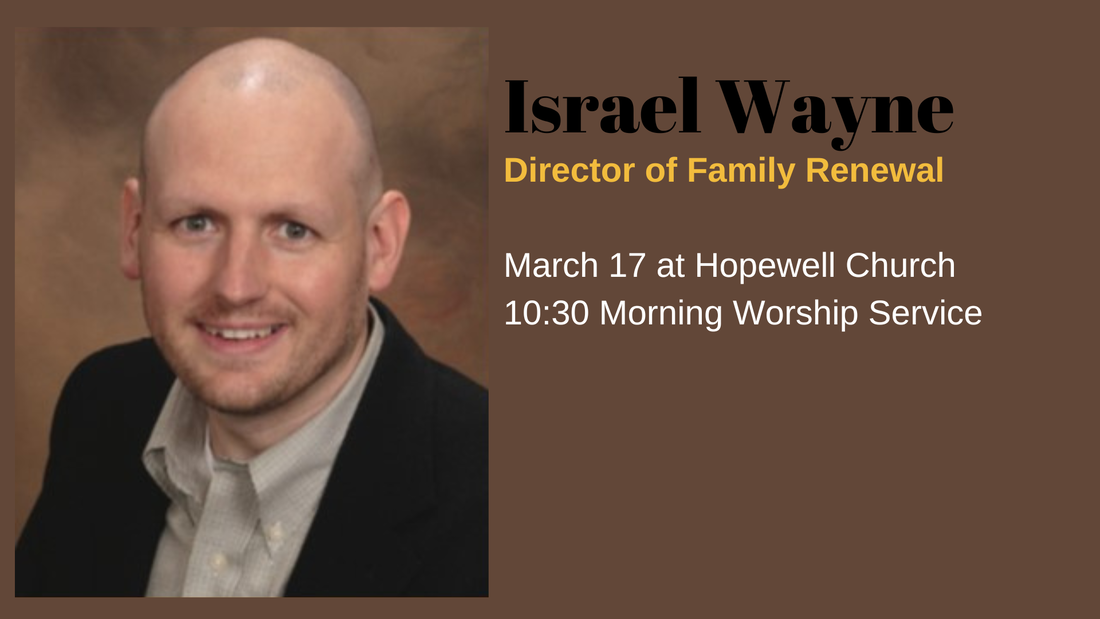

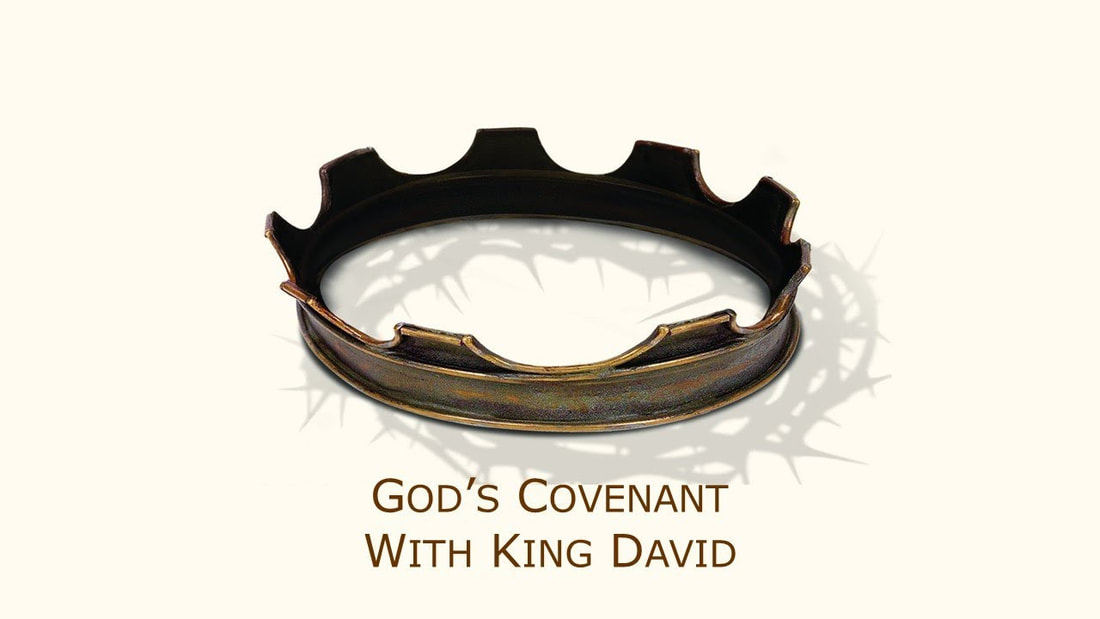

















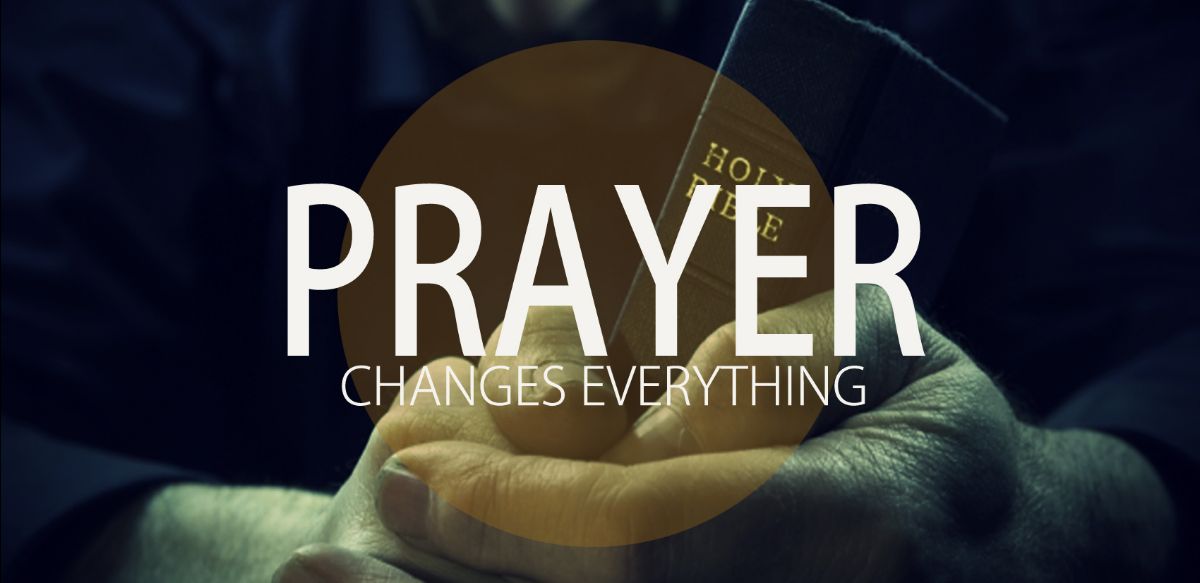


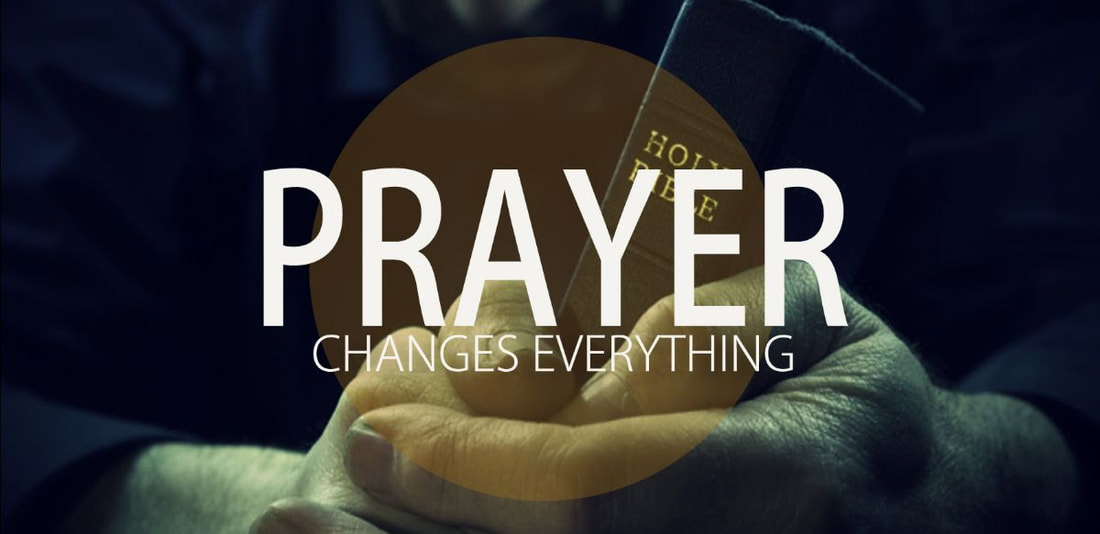




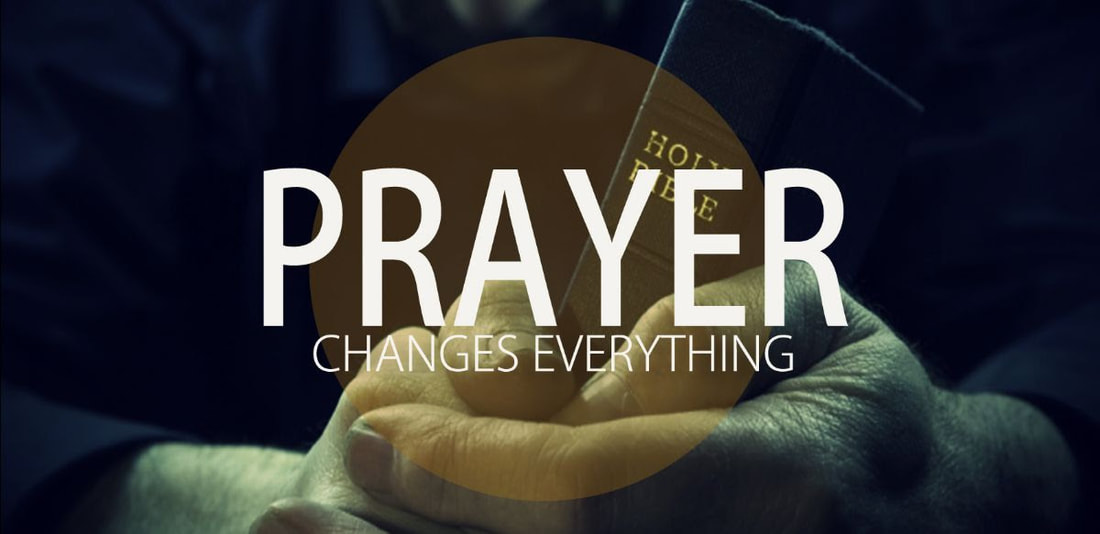
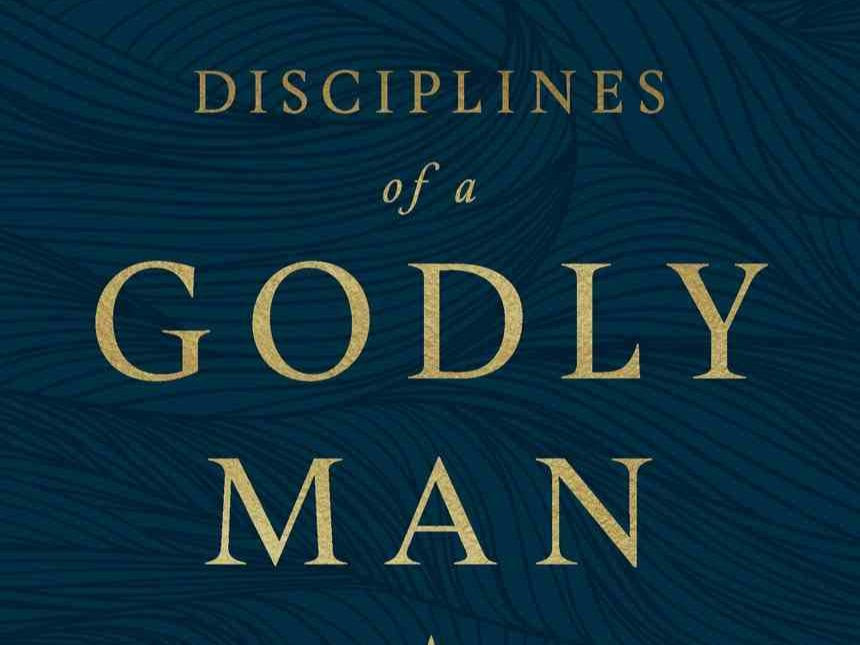













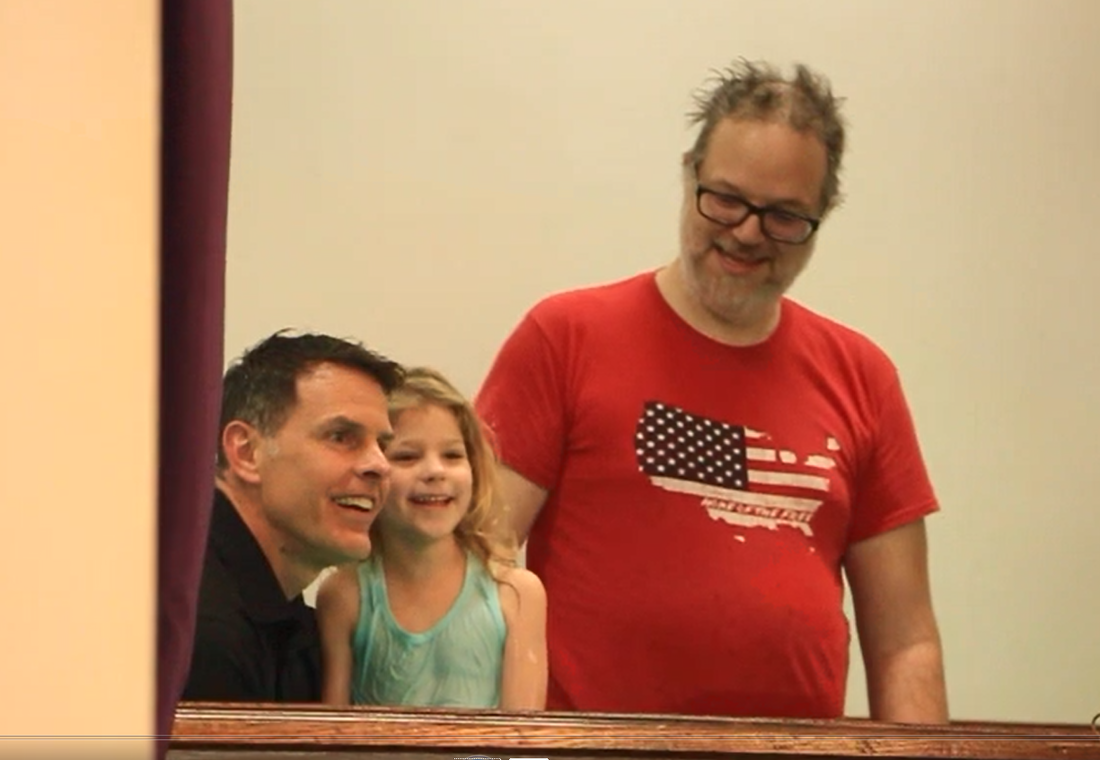
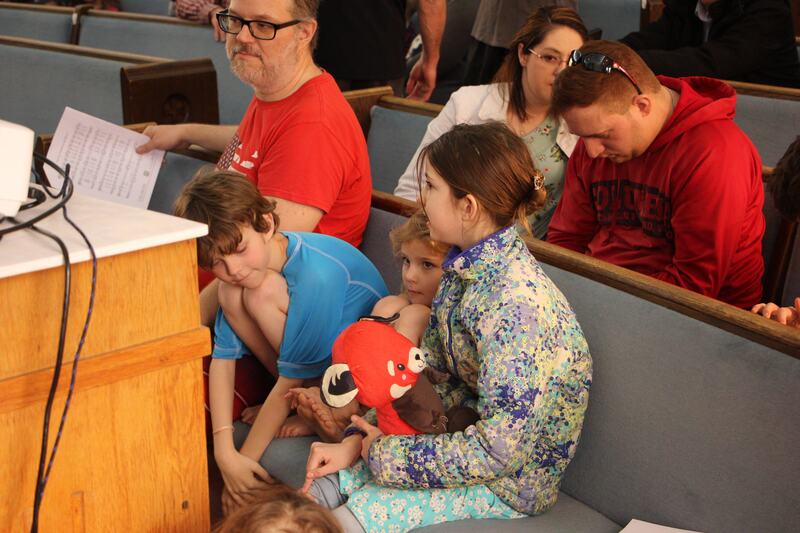

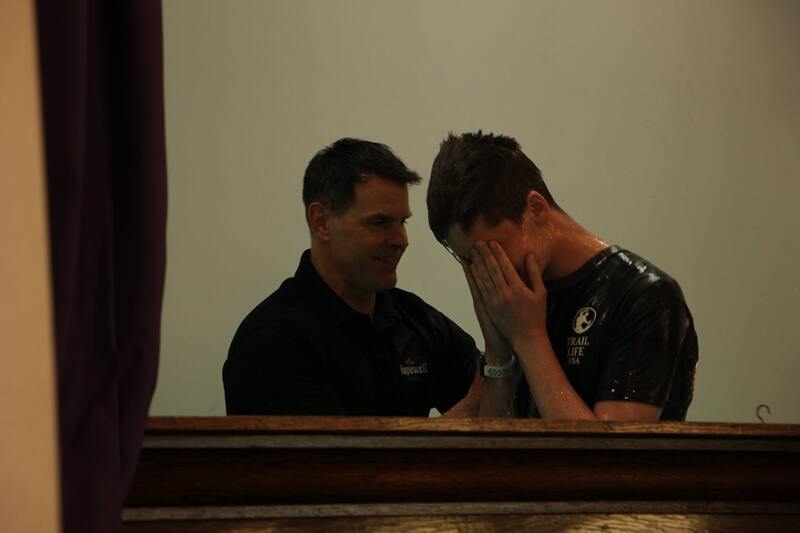
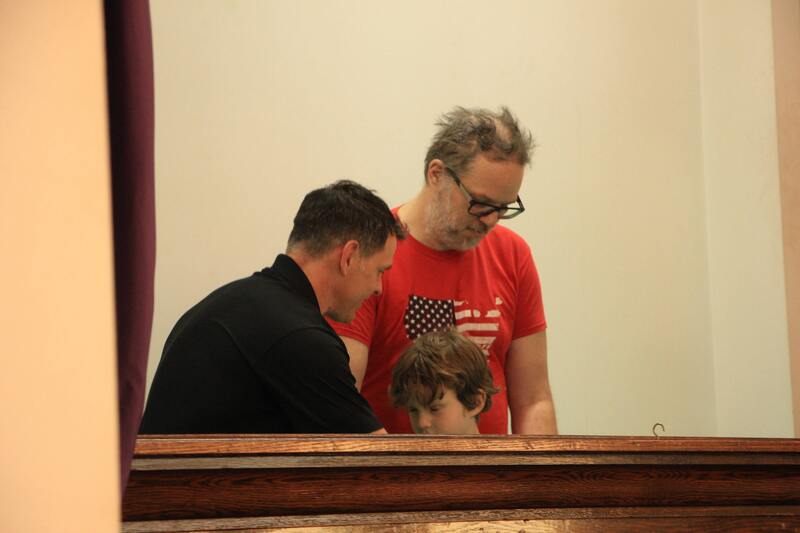

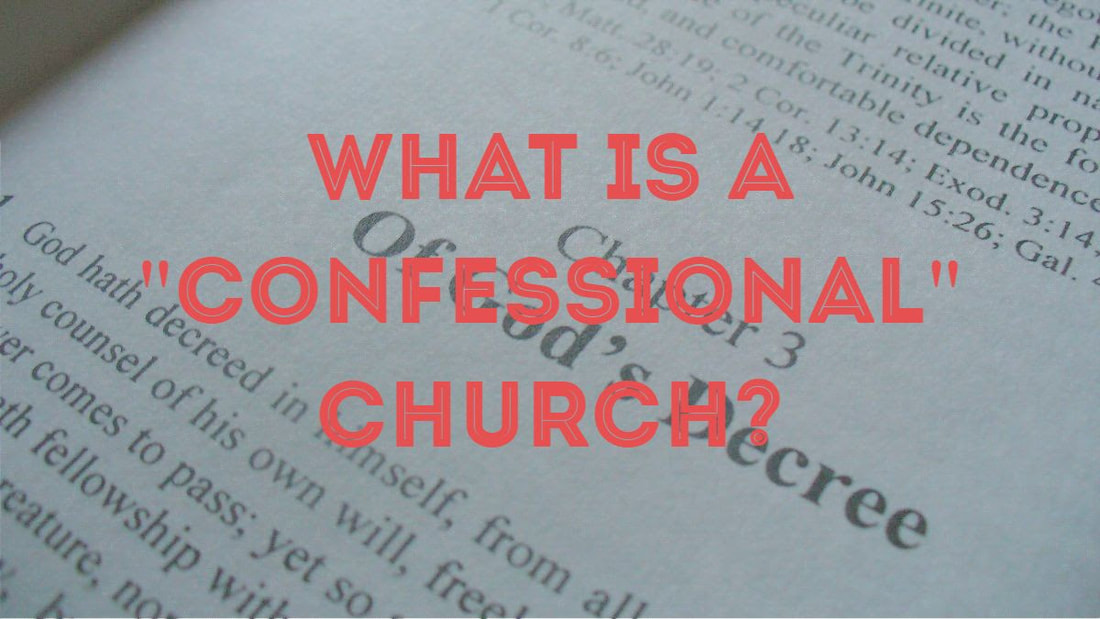





 RSS Feed
RSS Feed